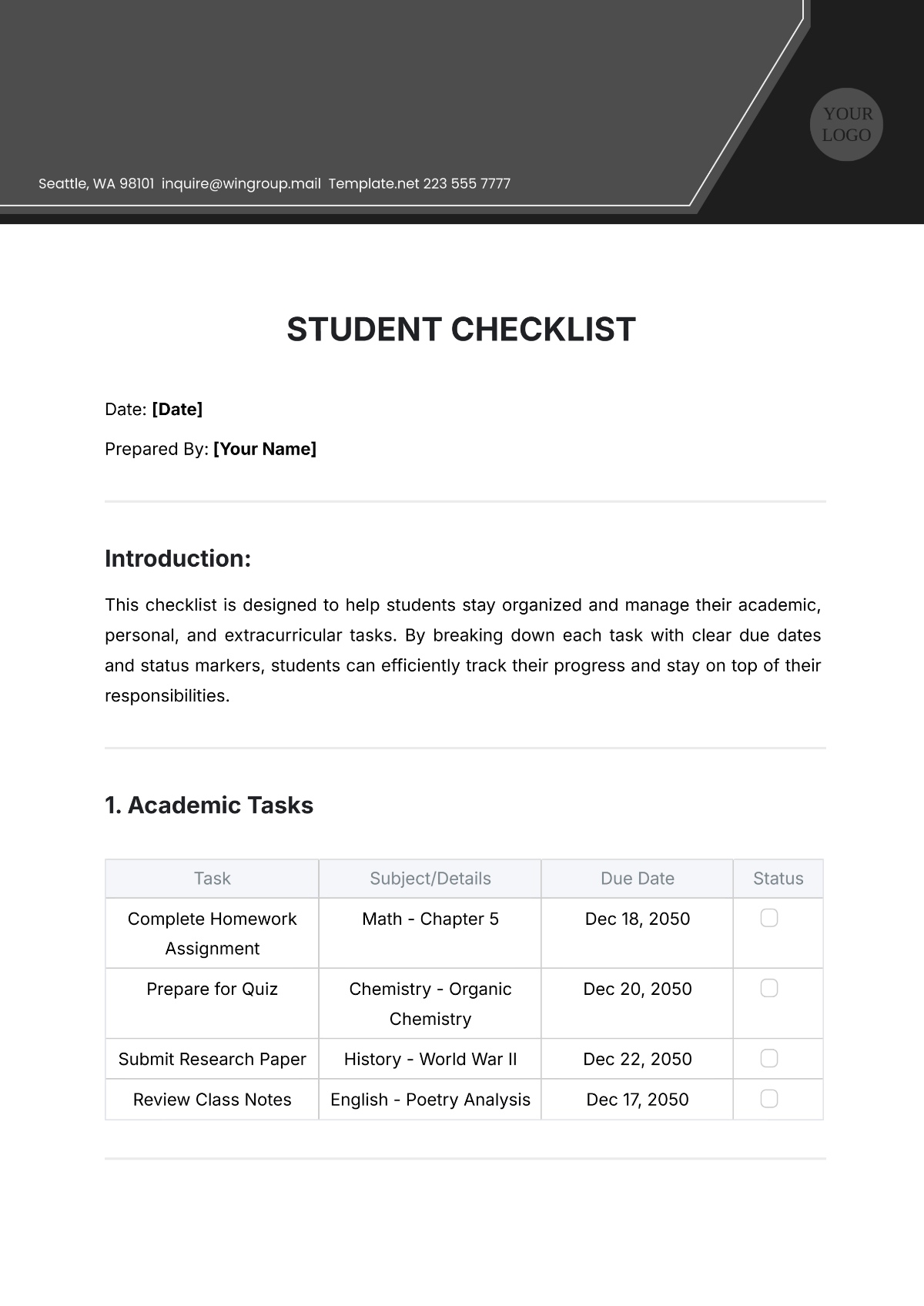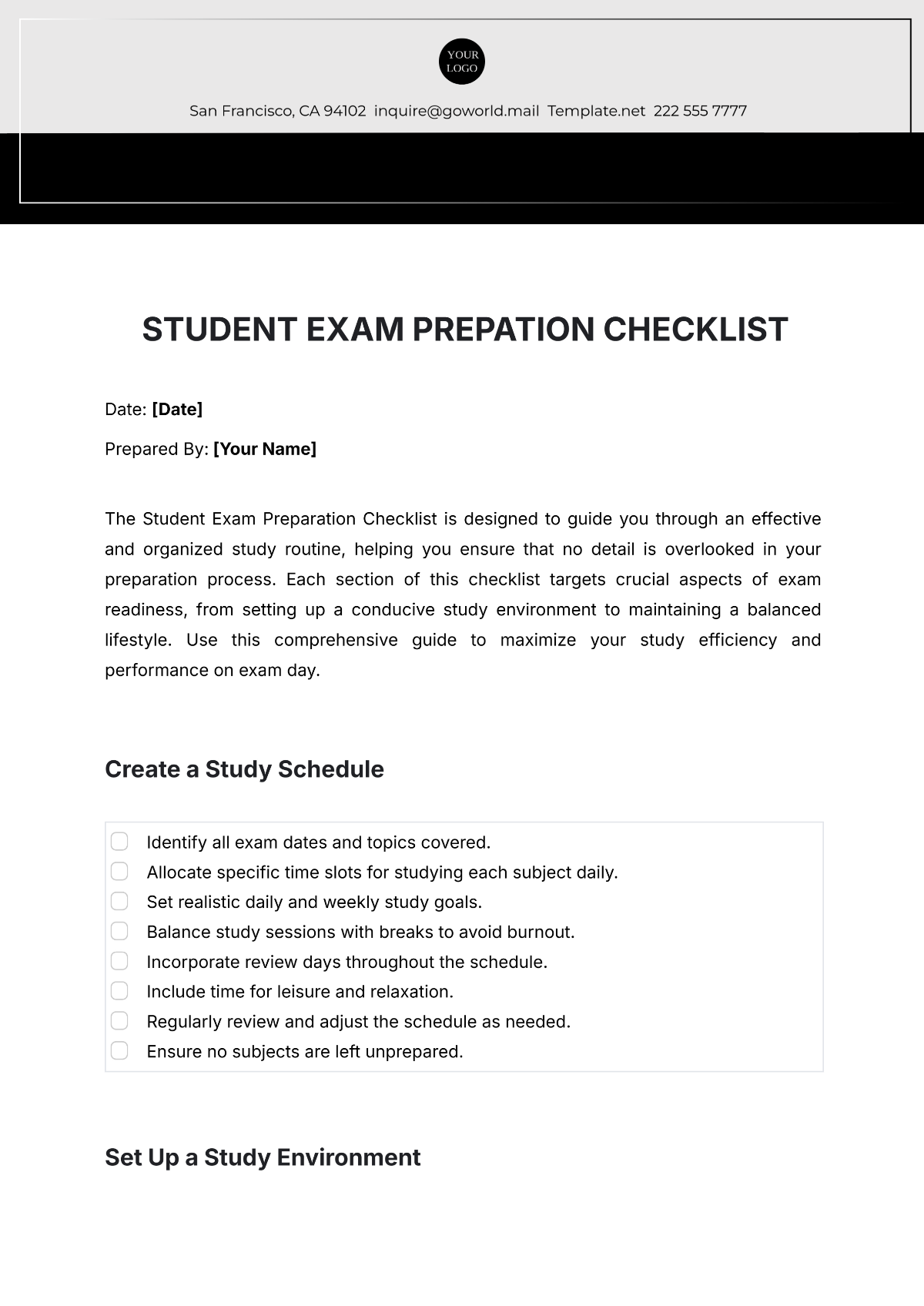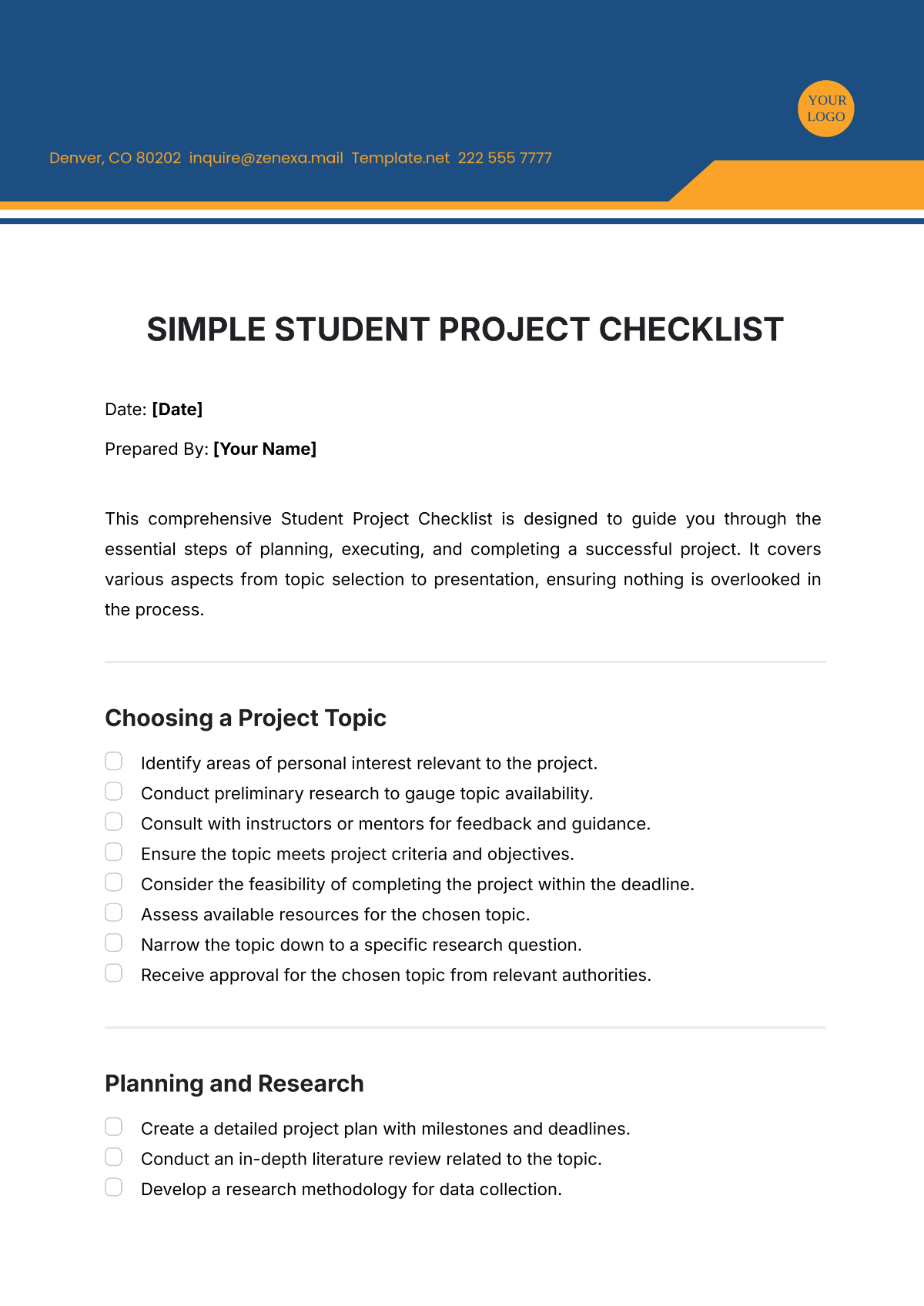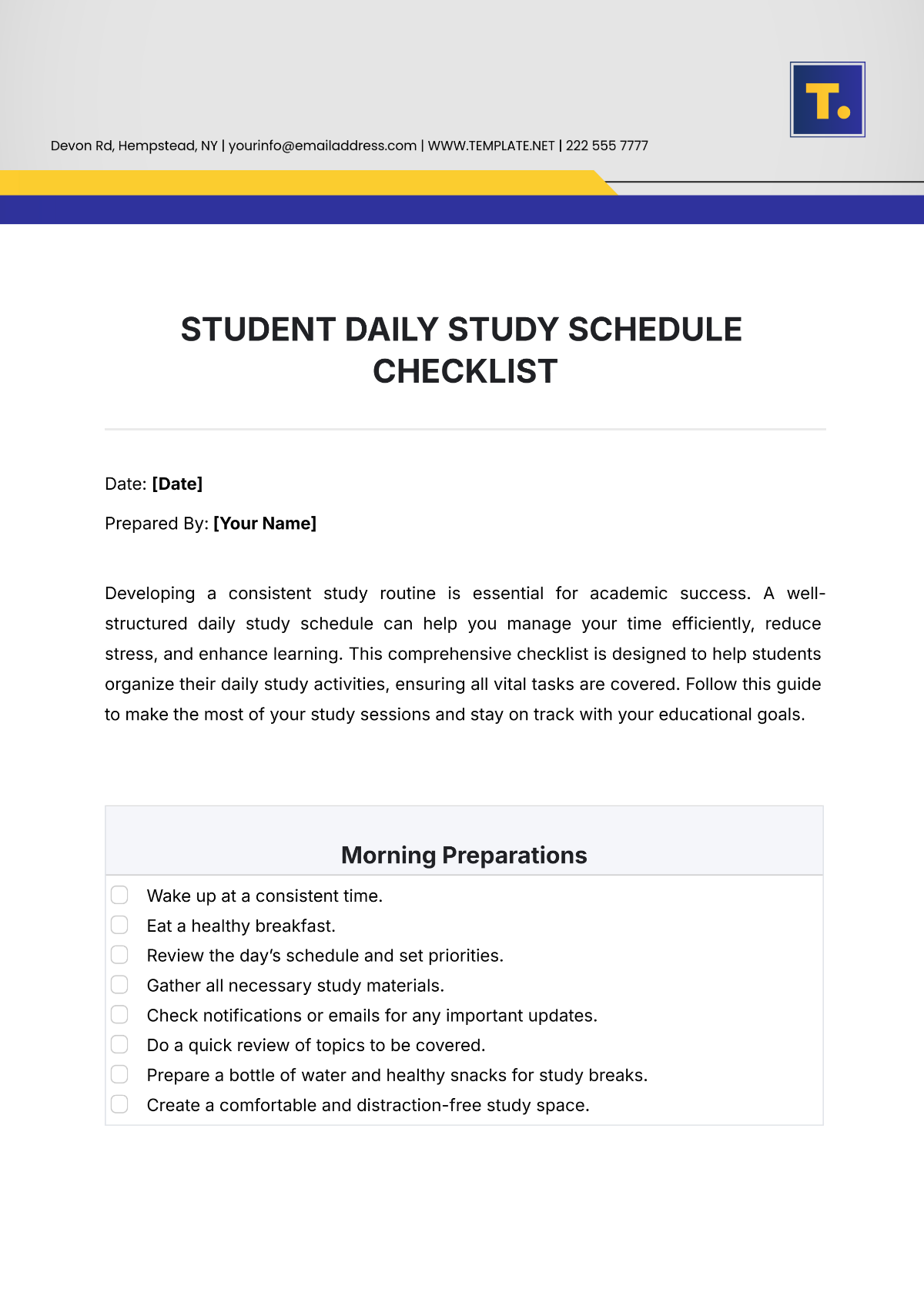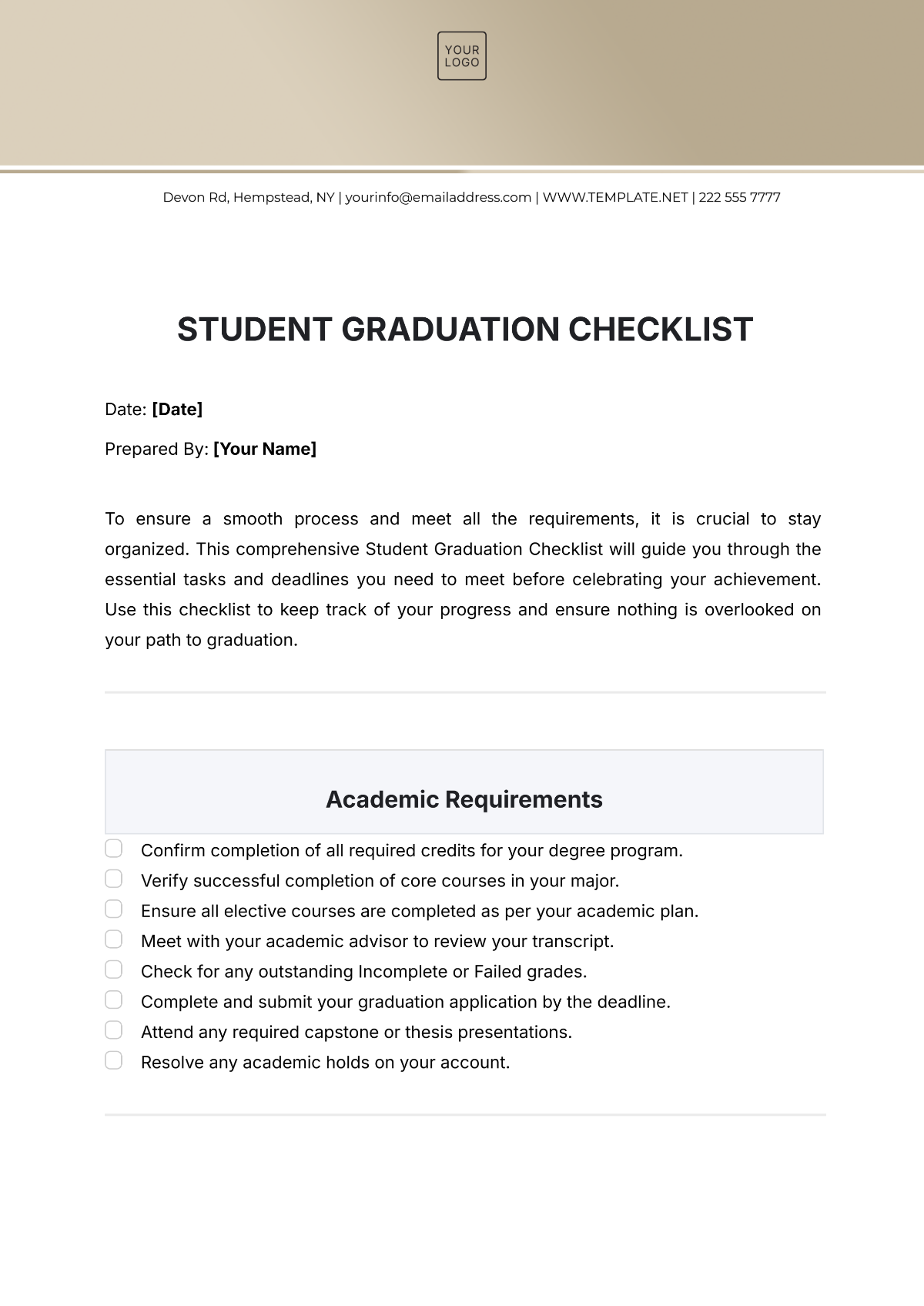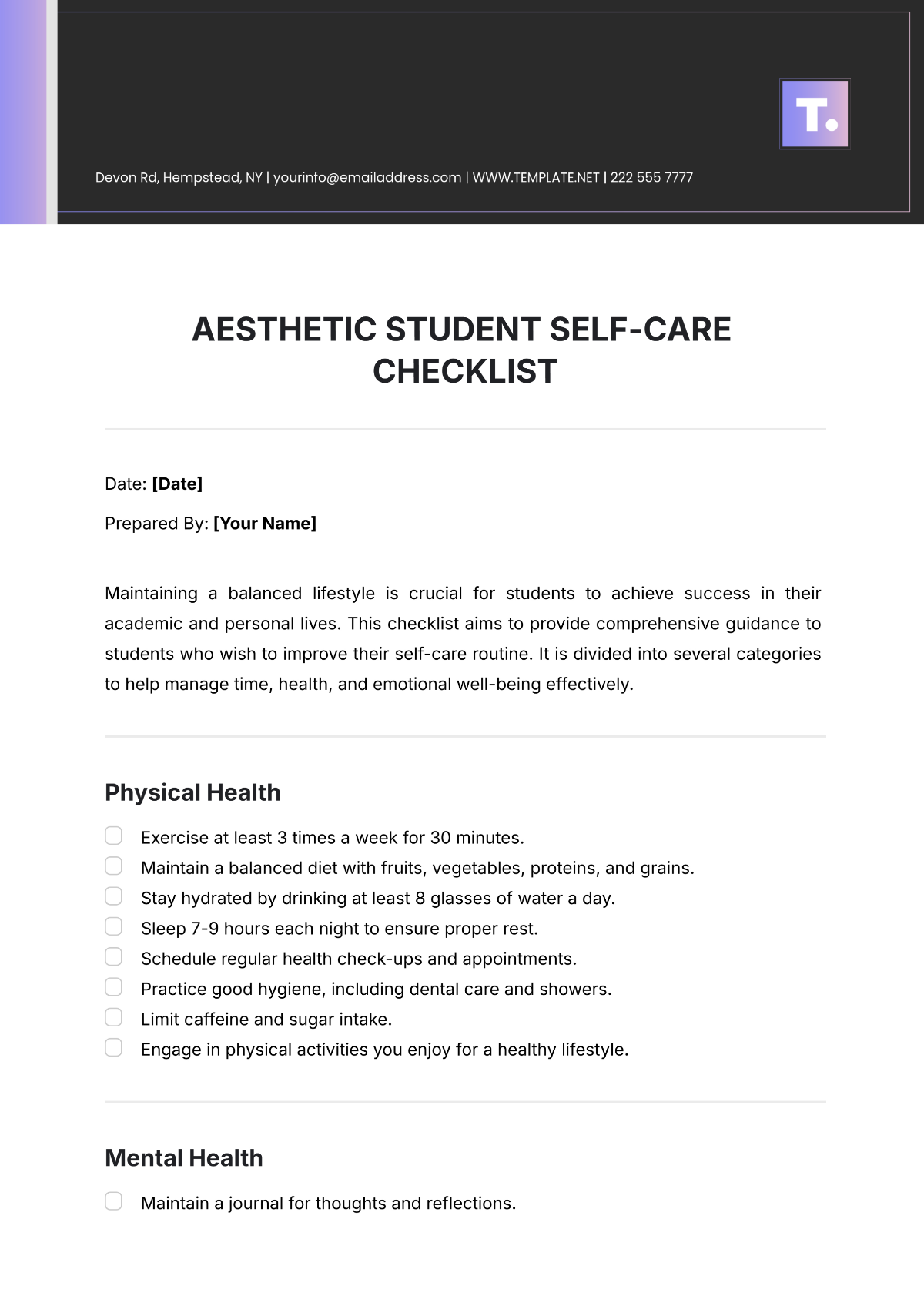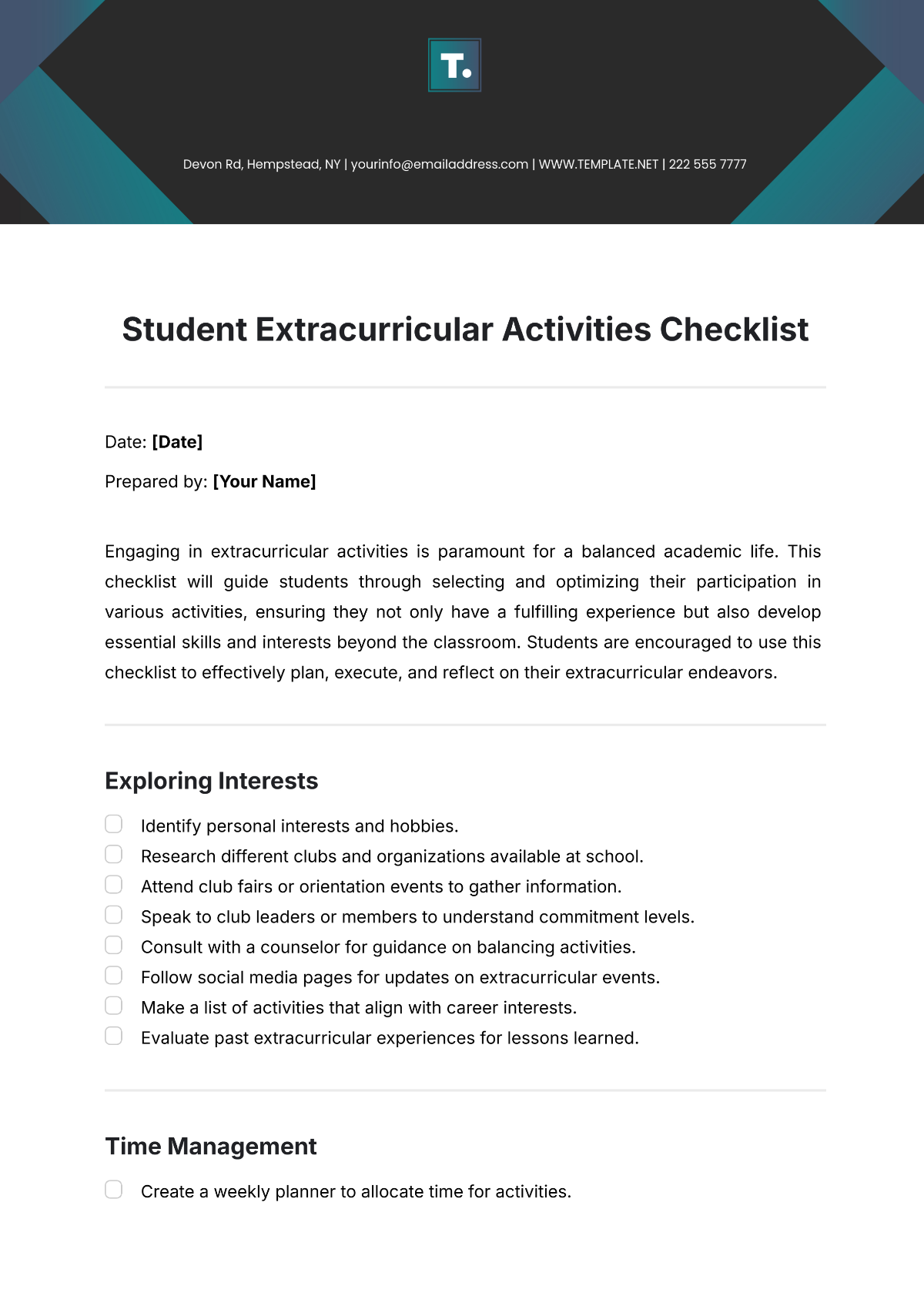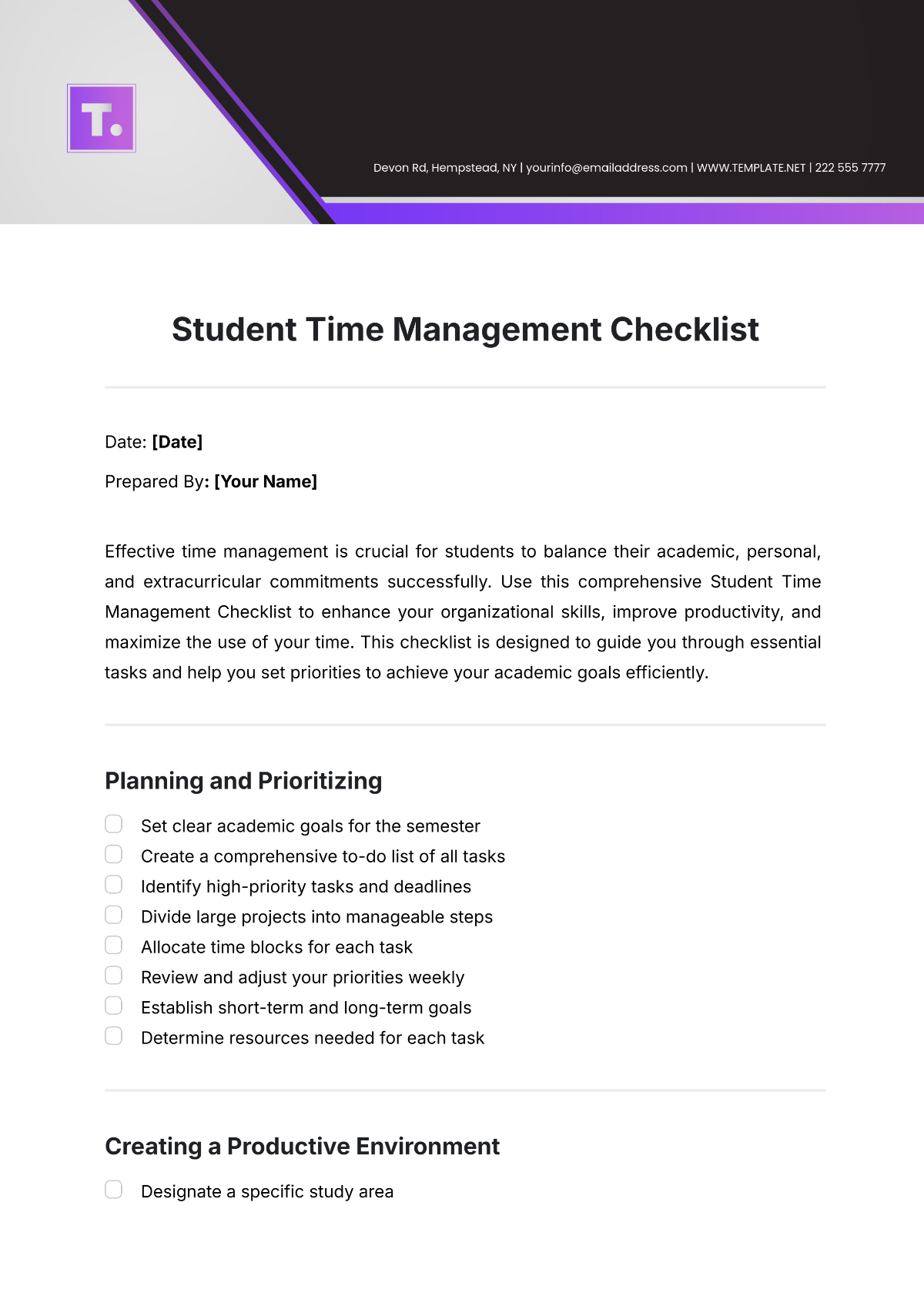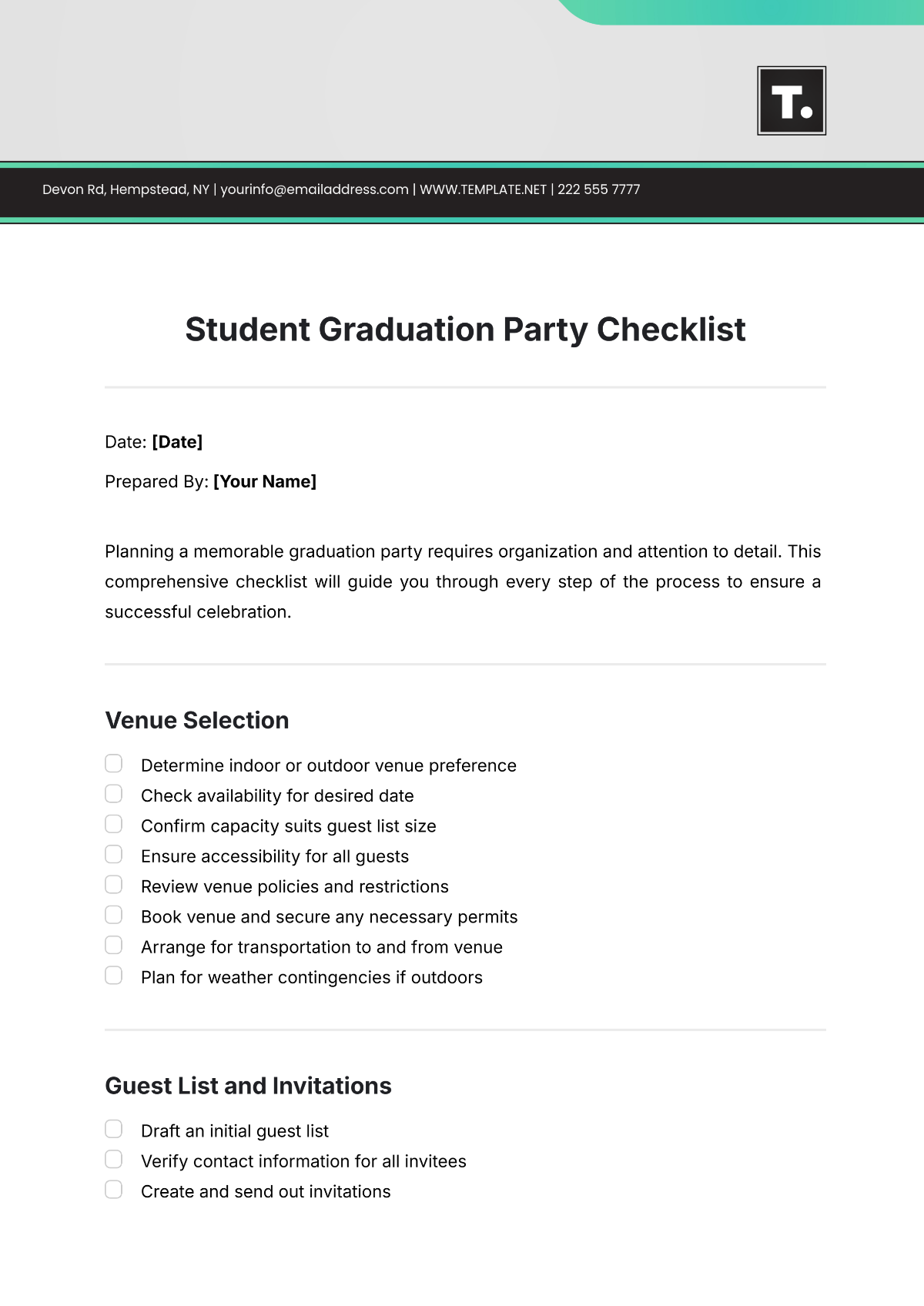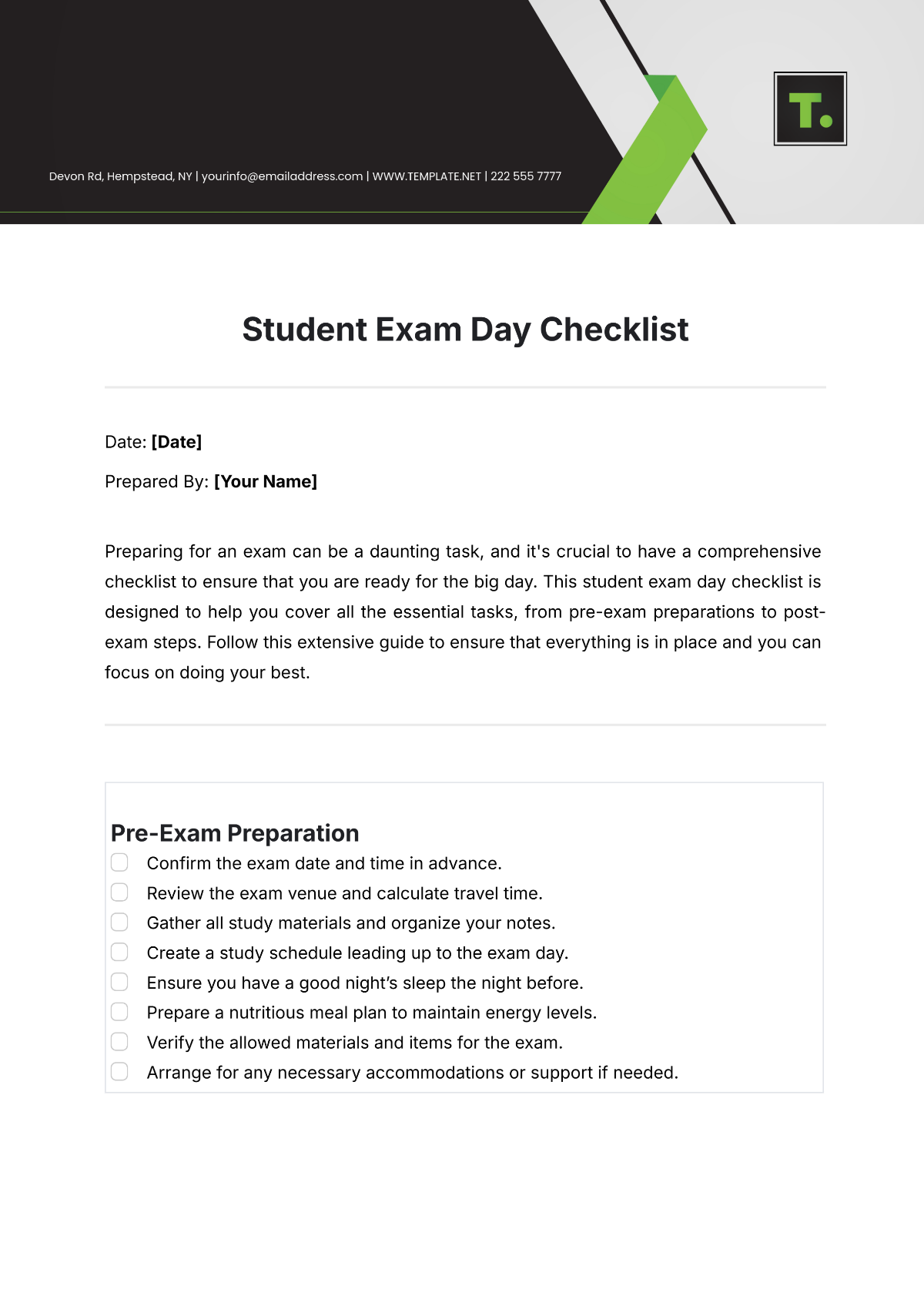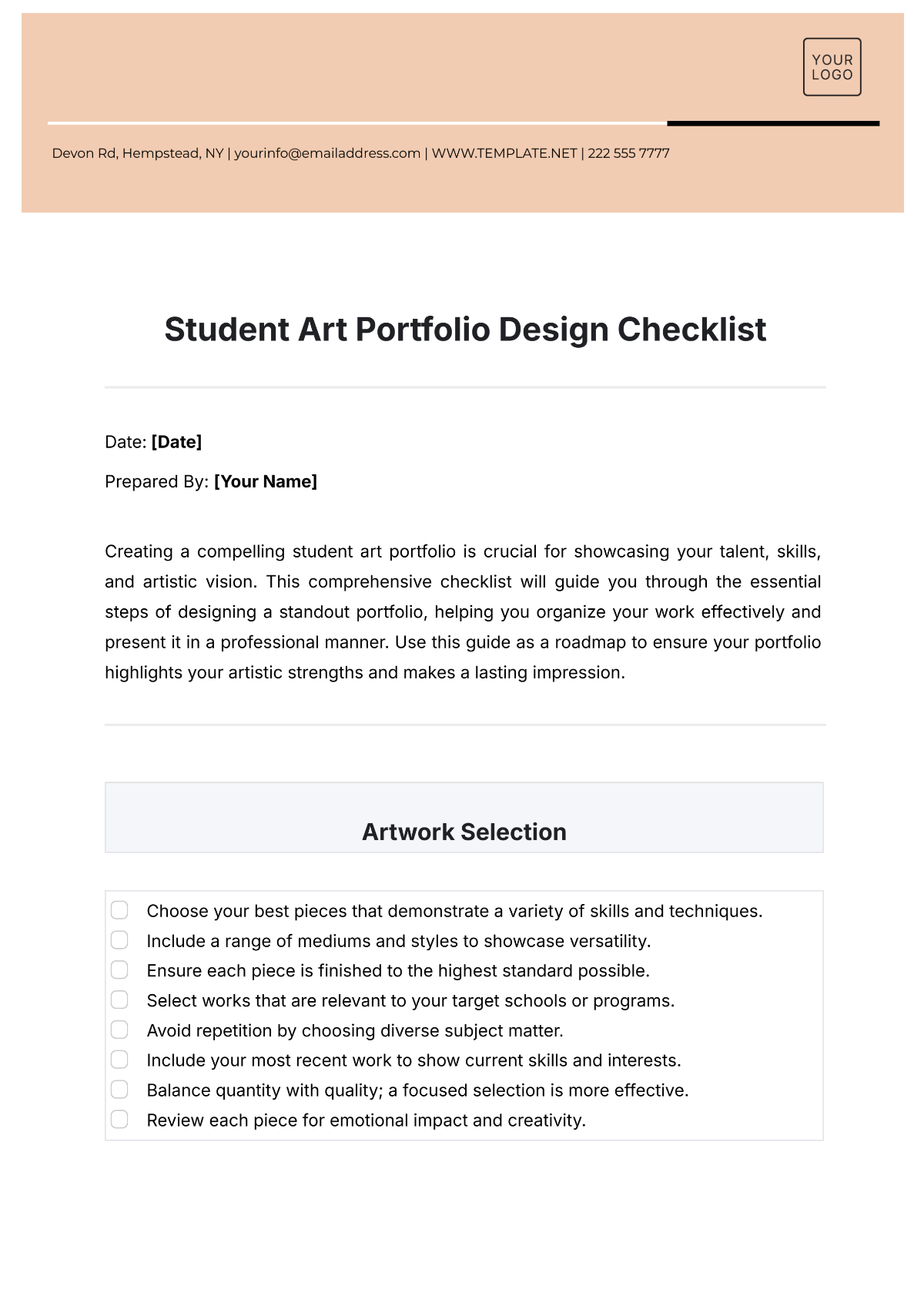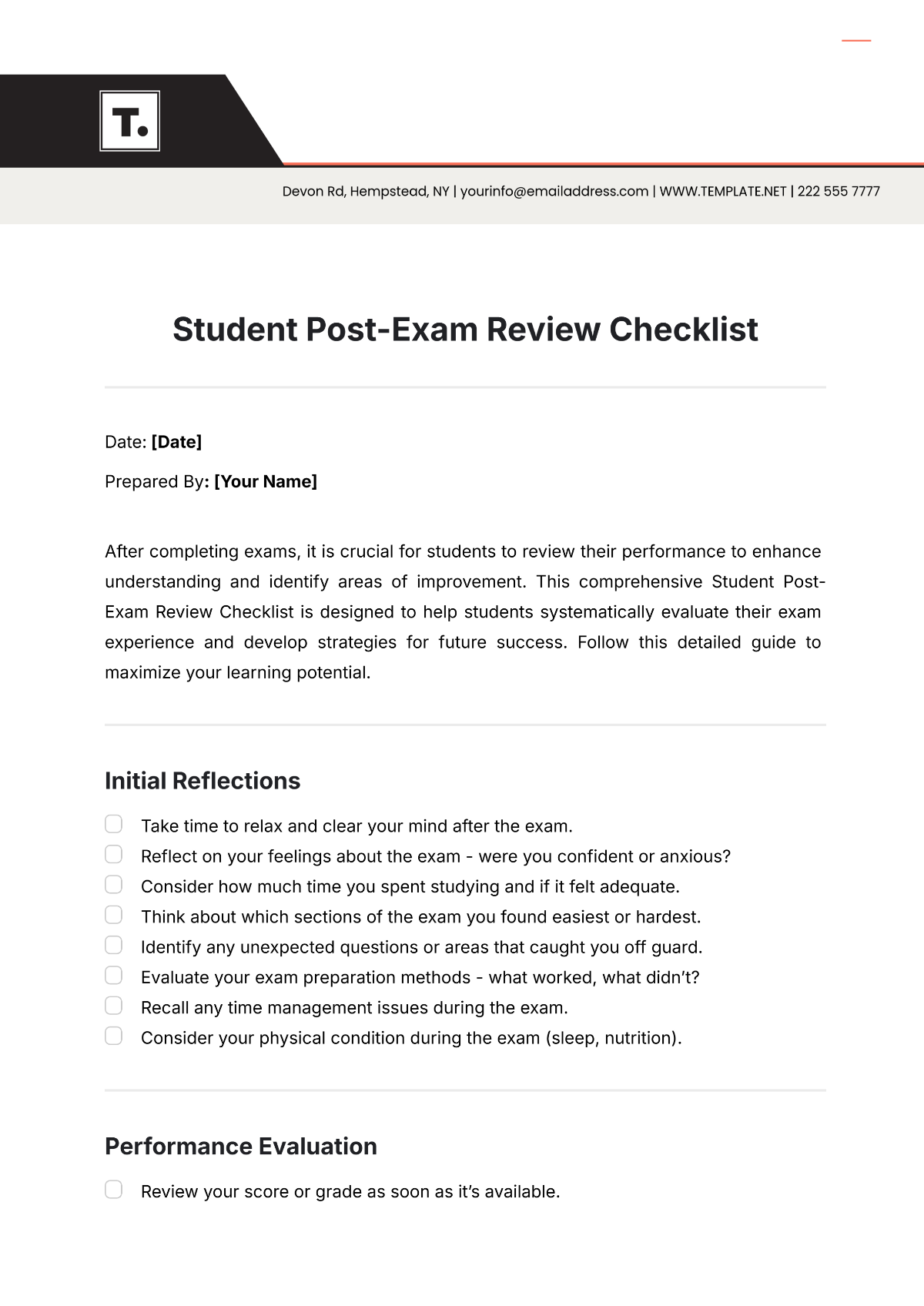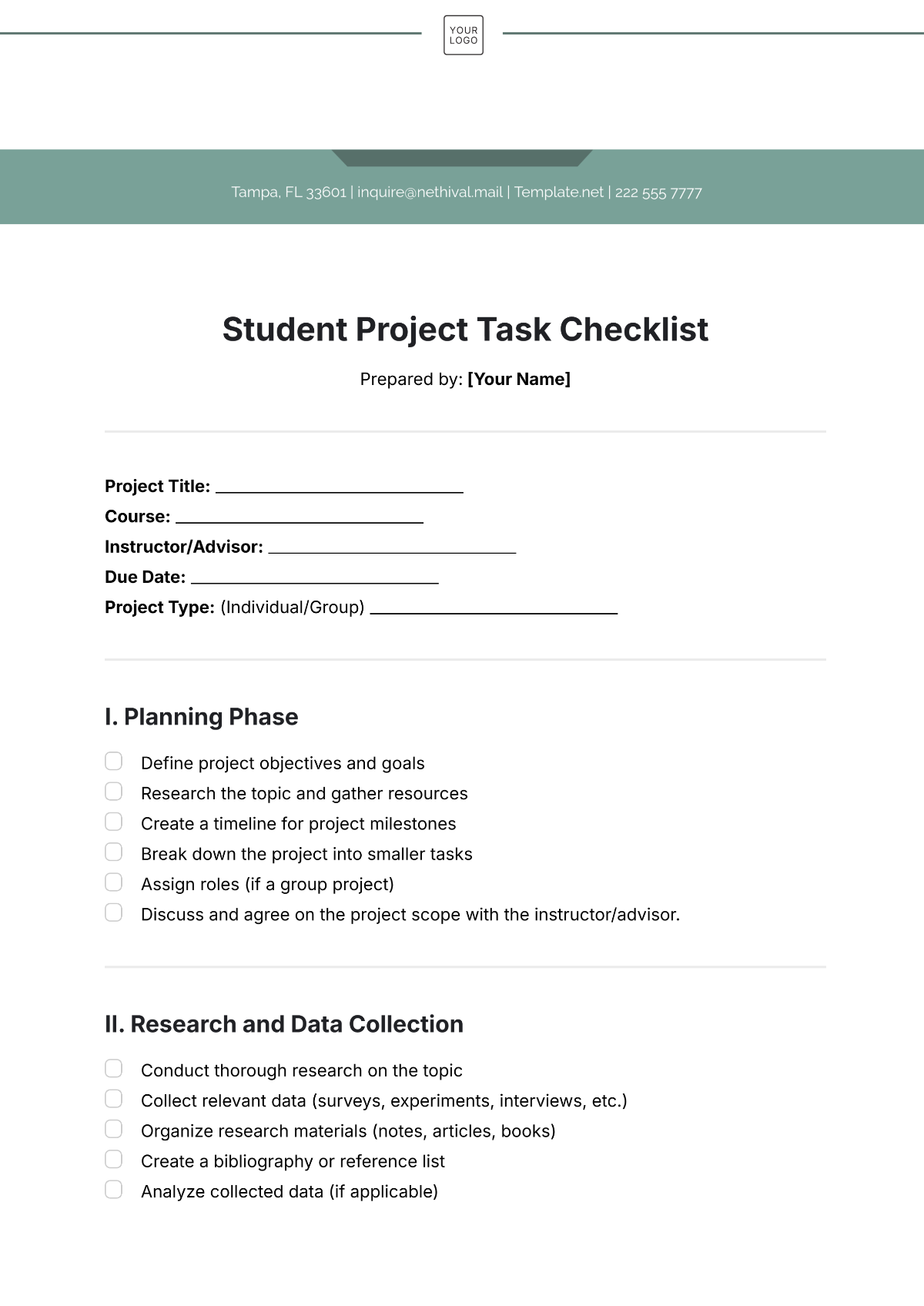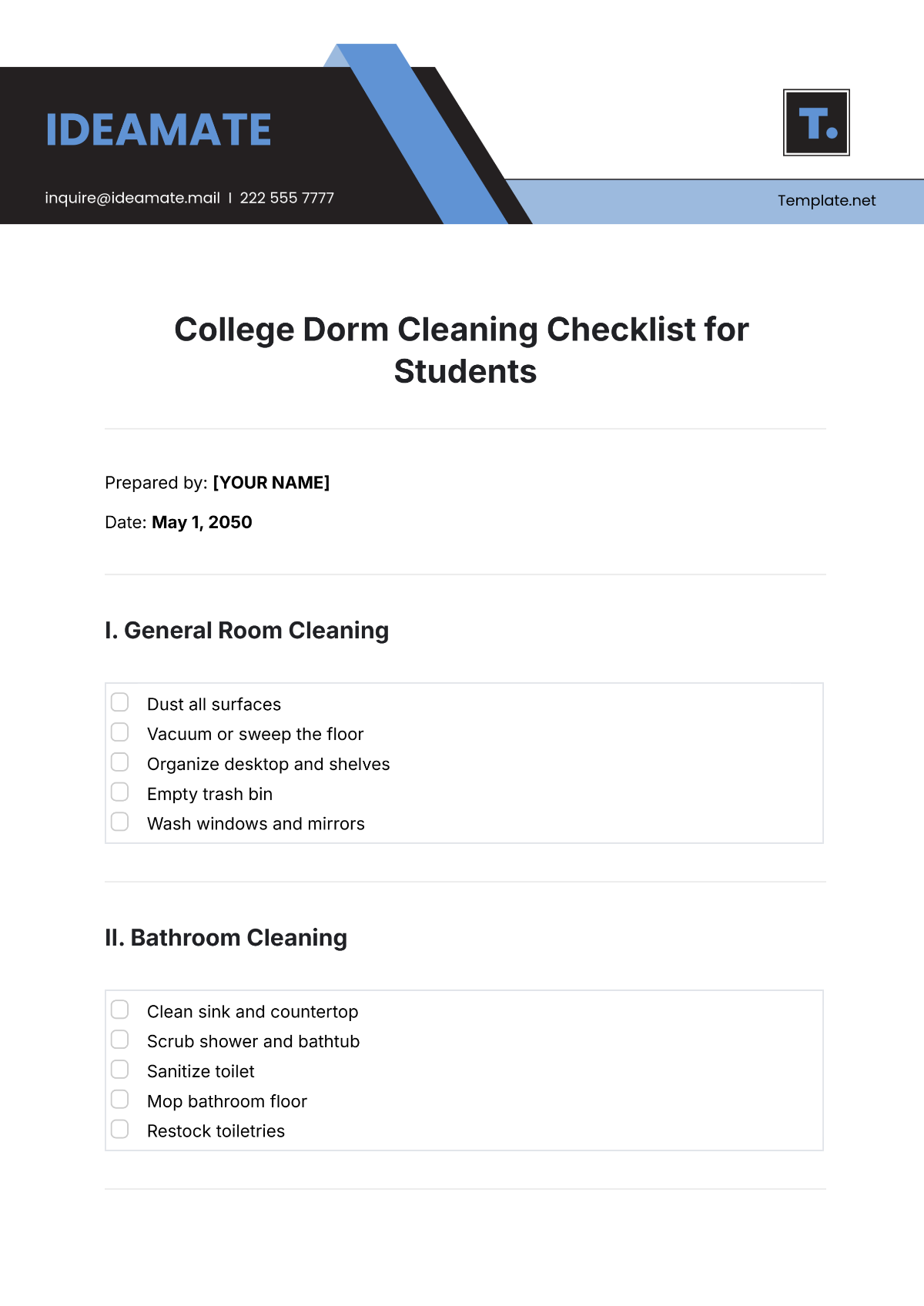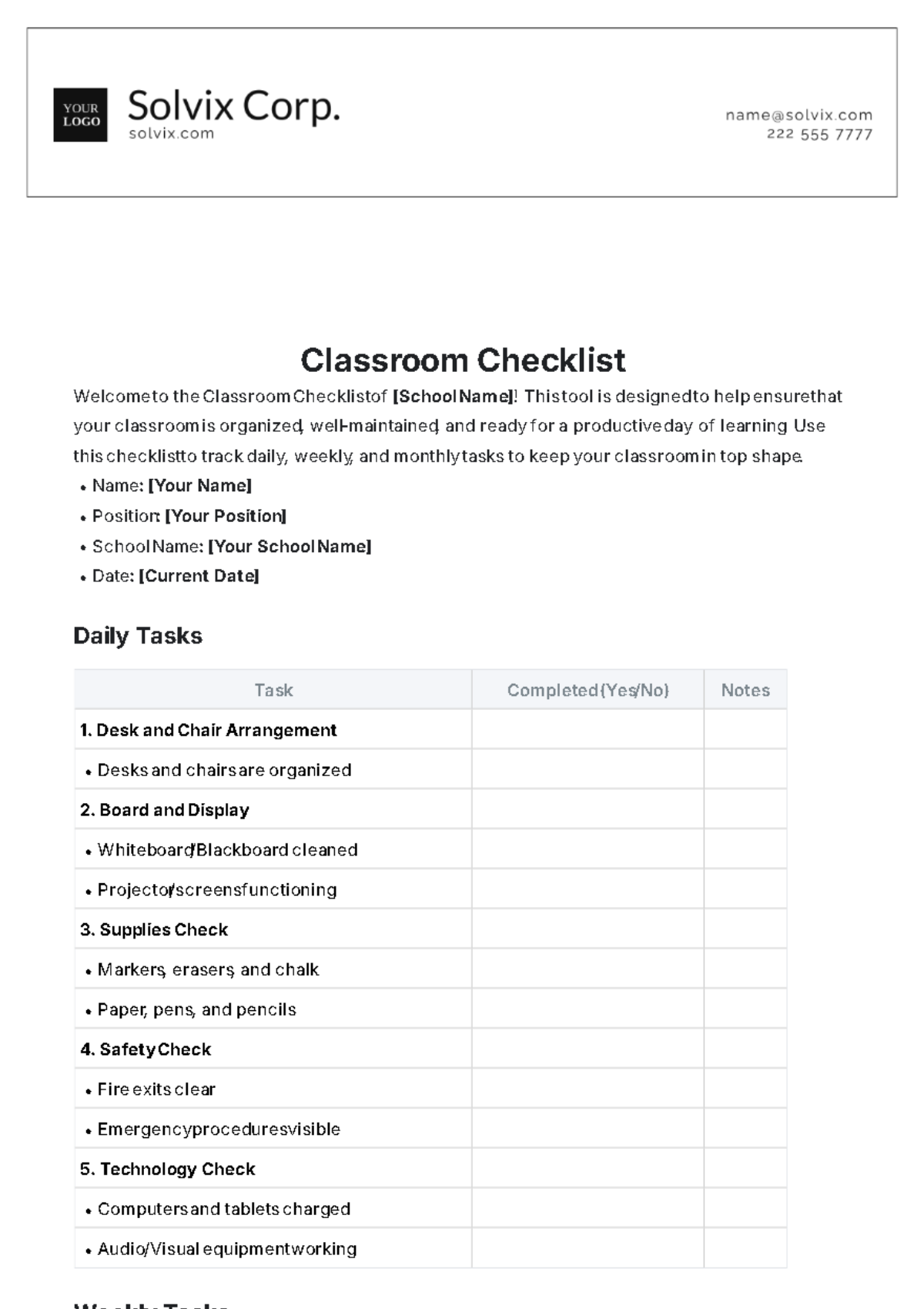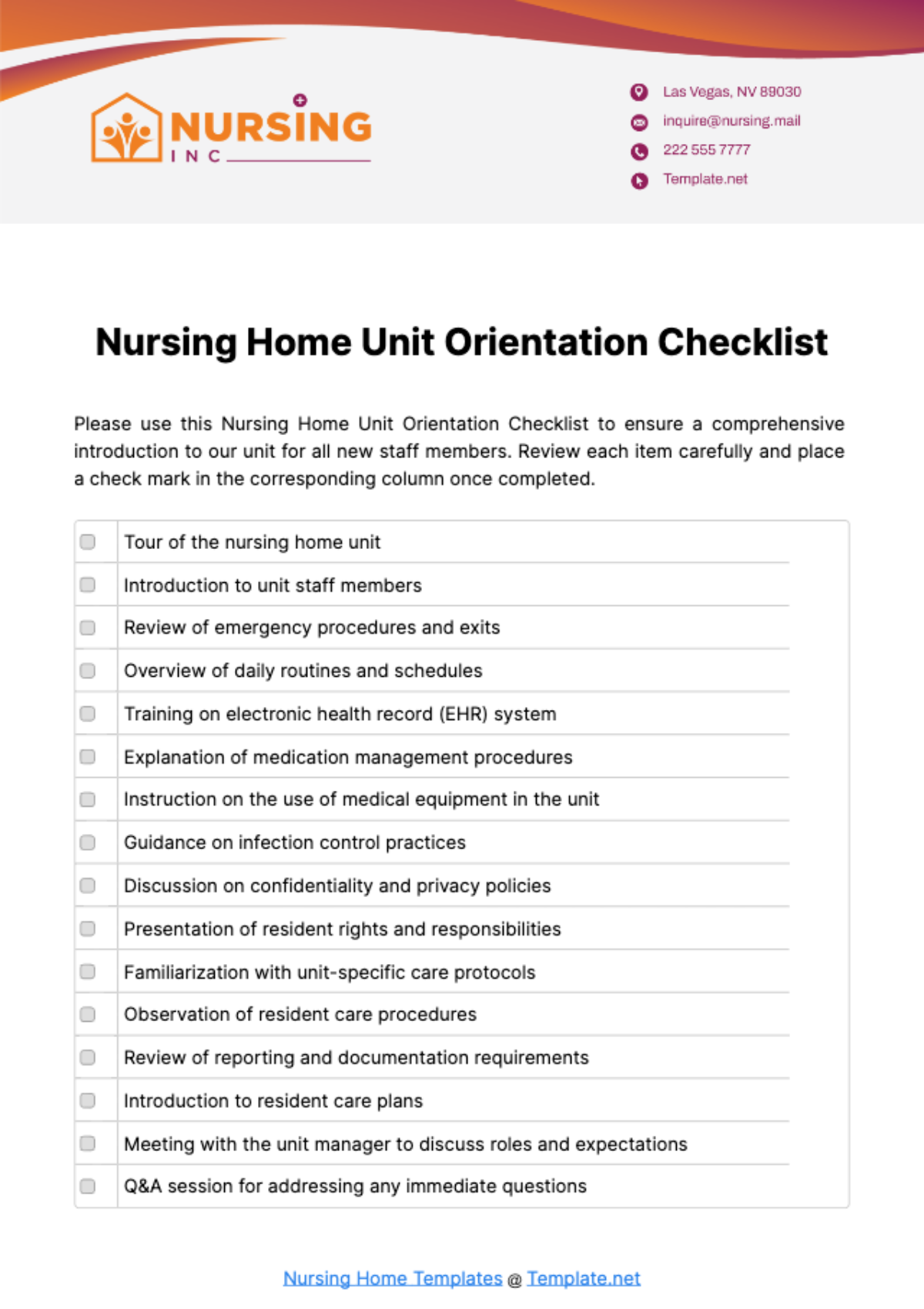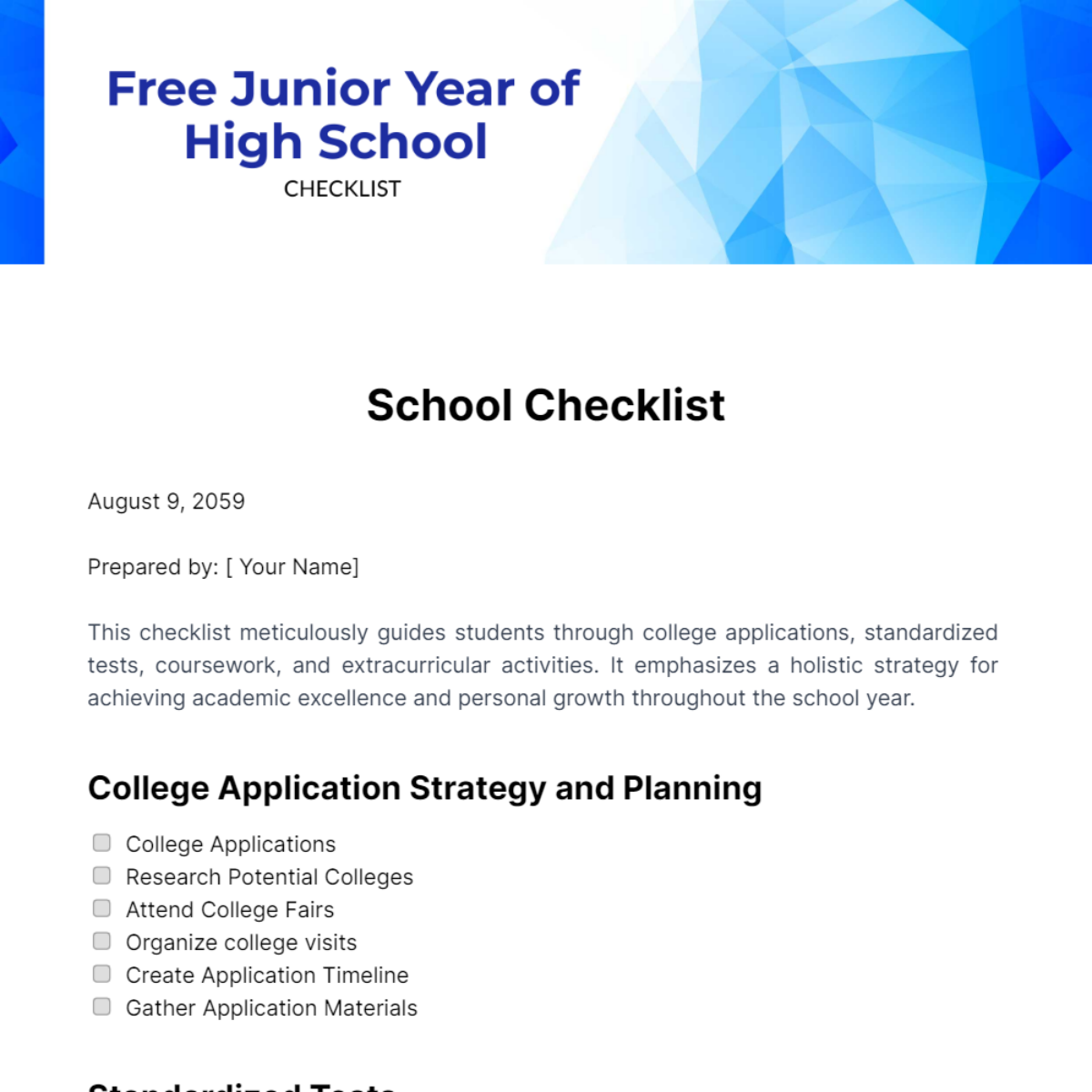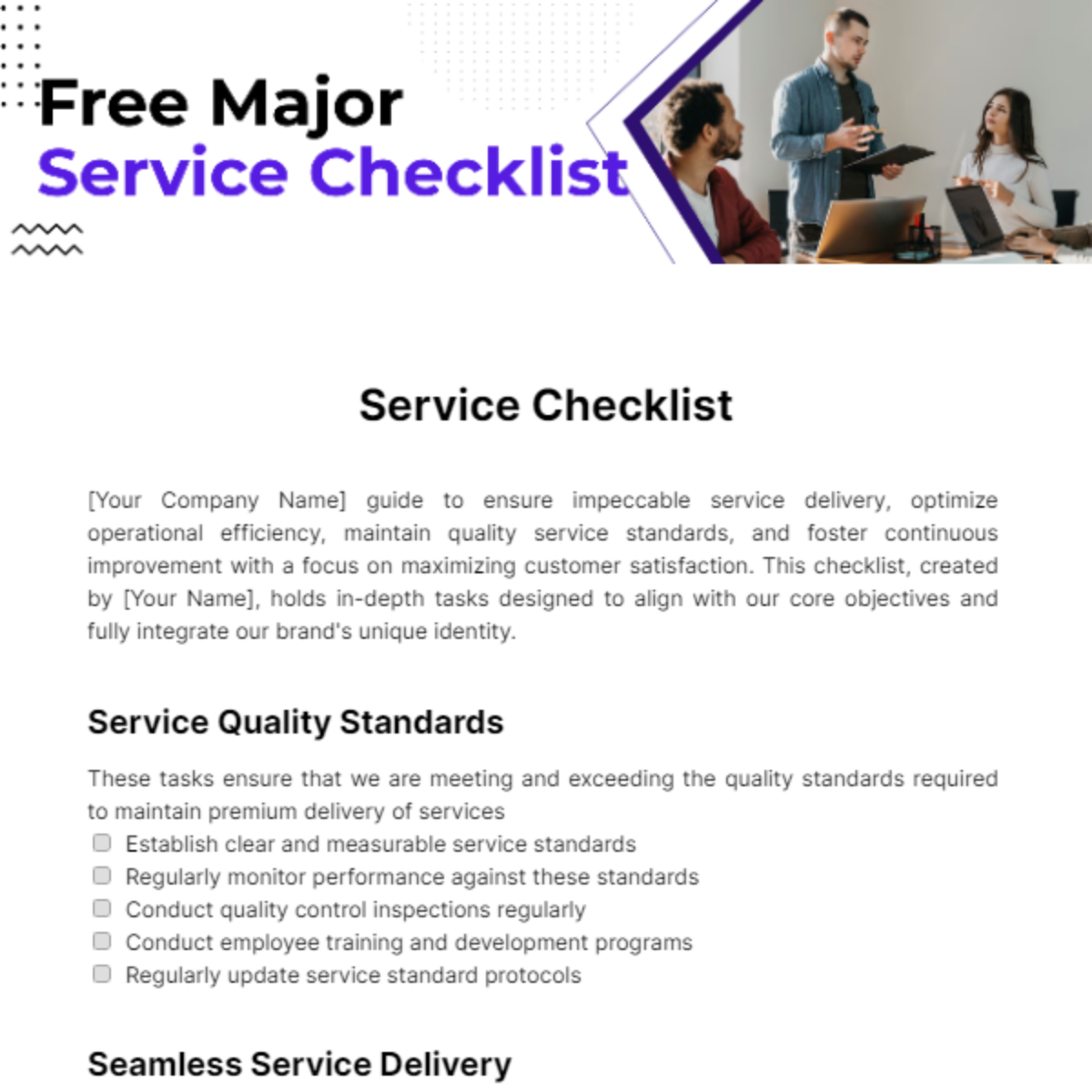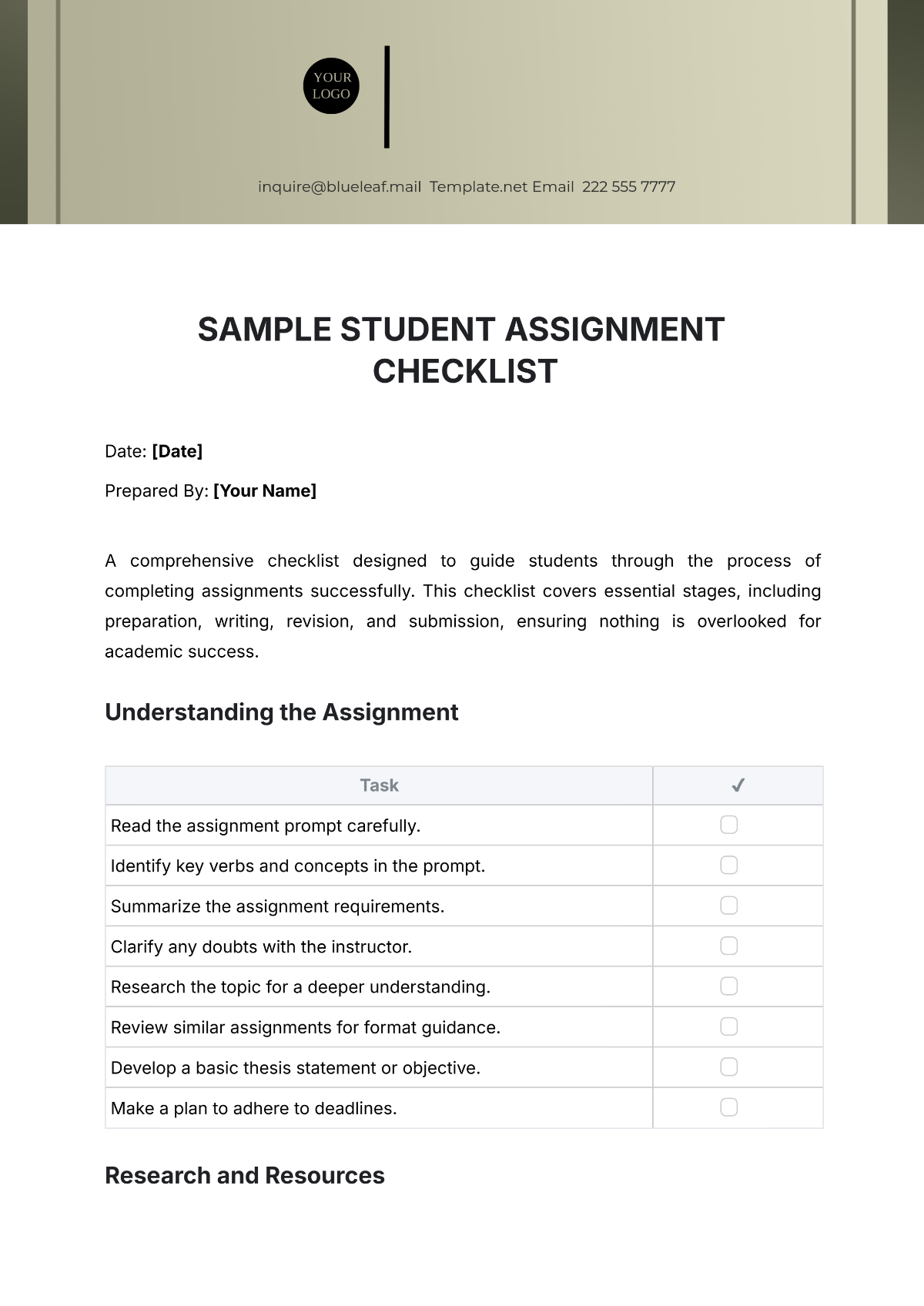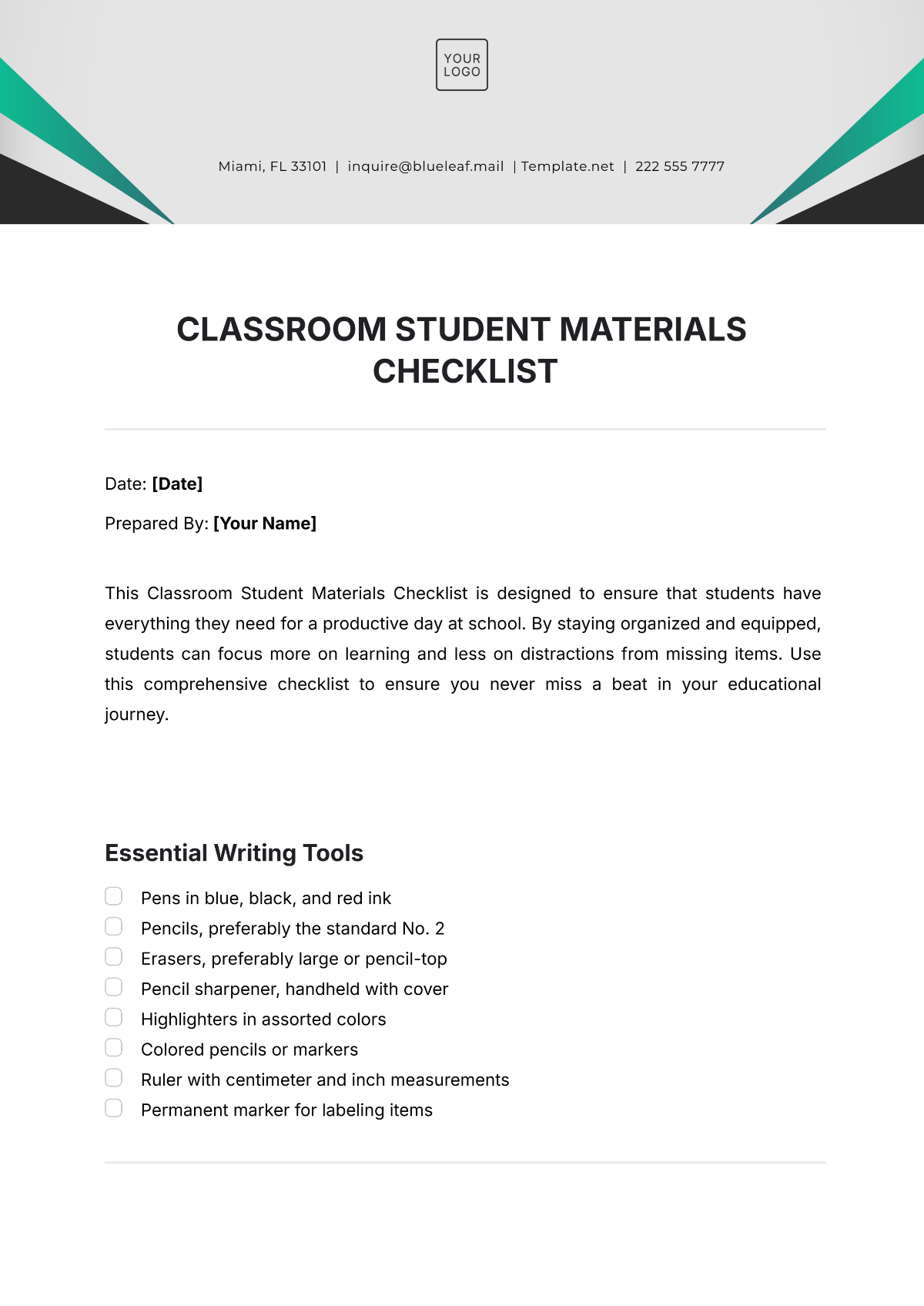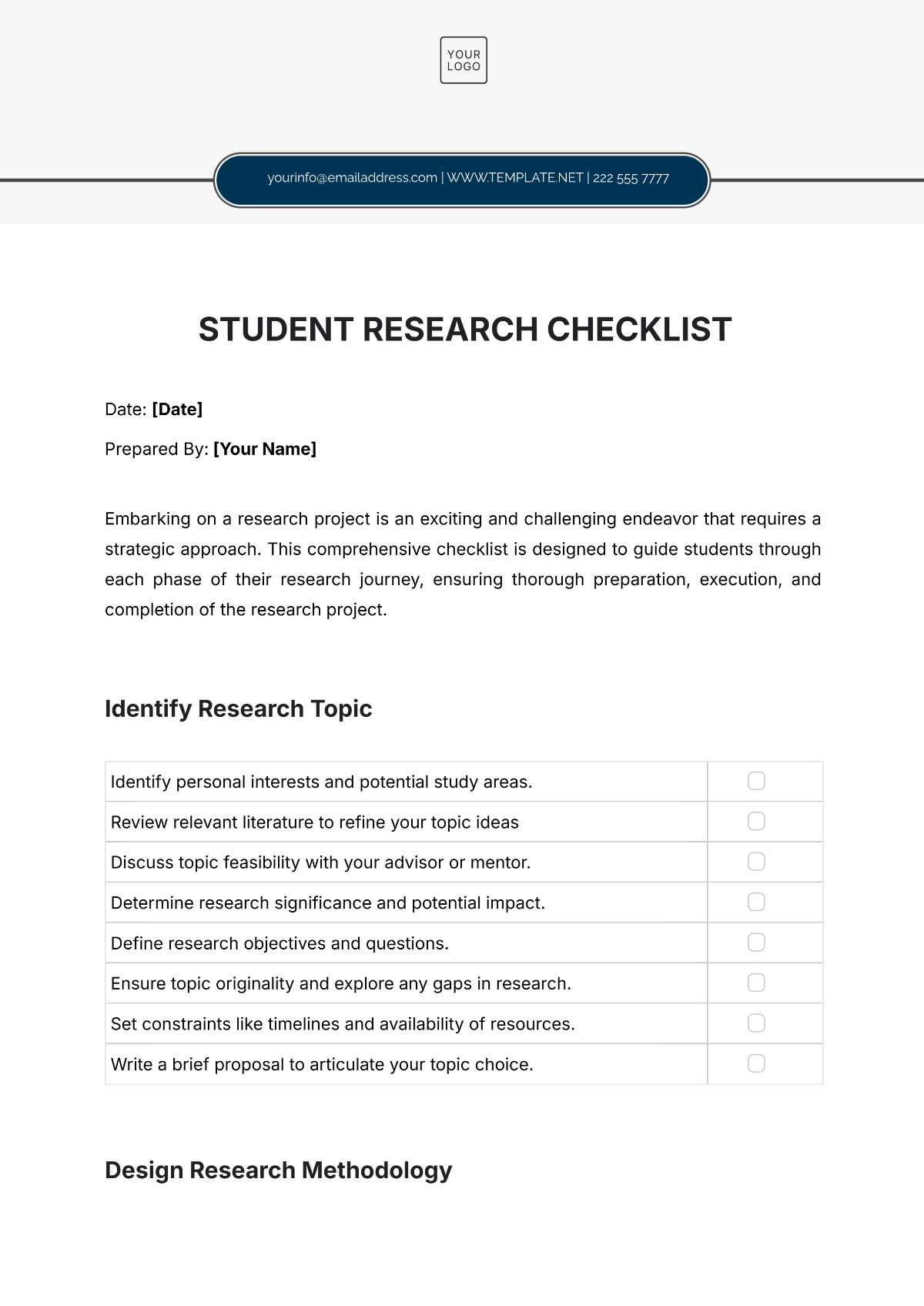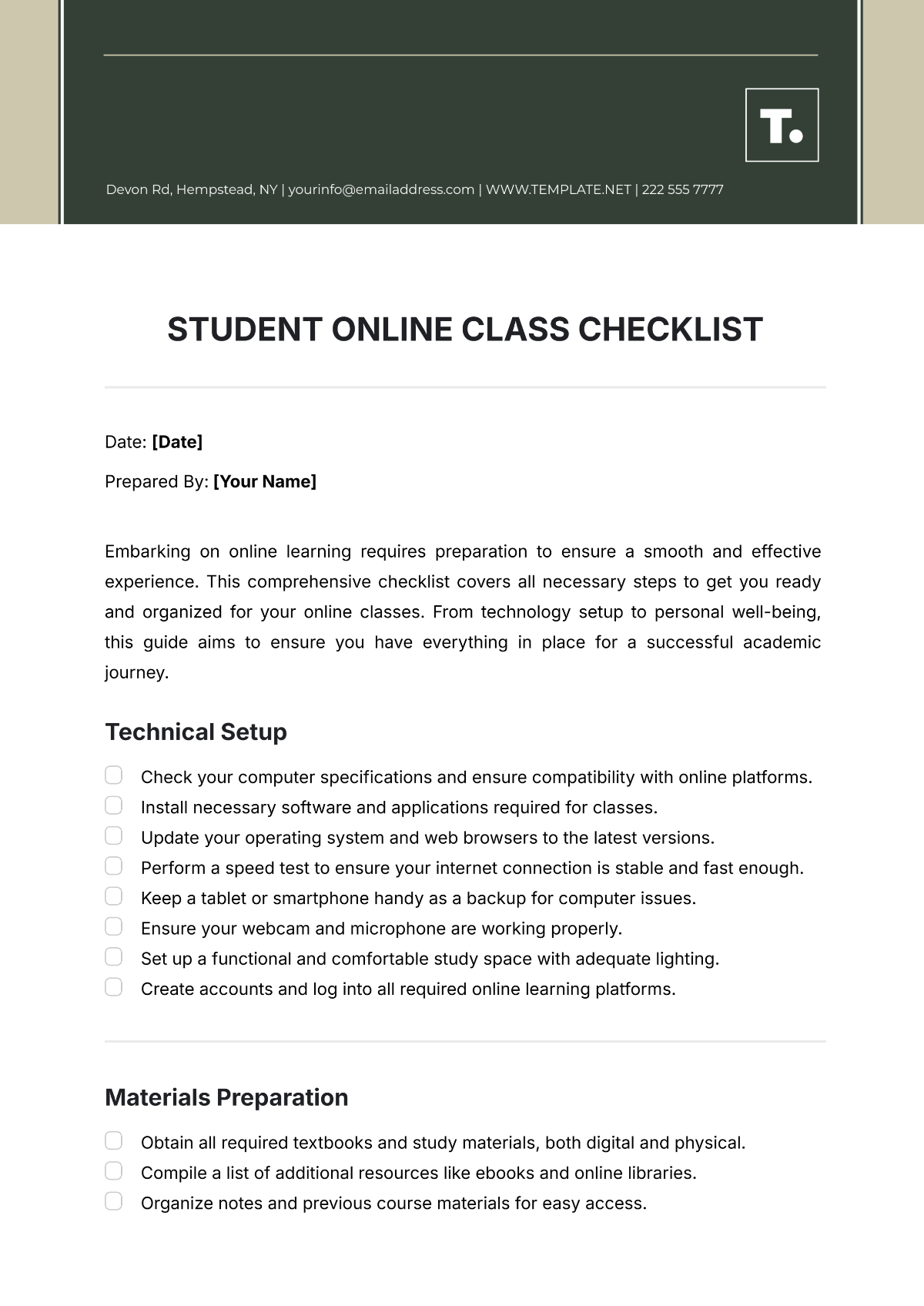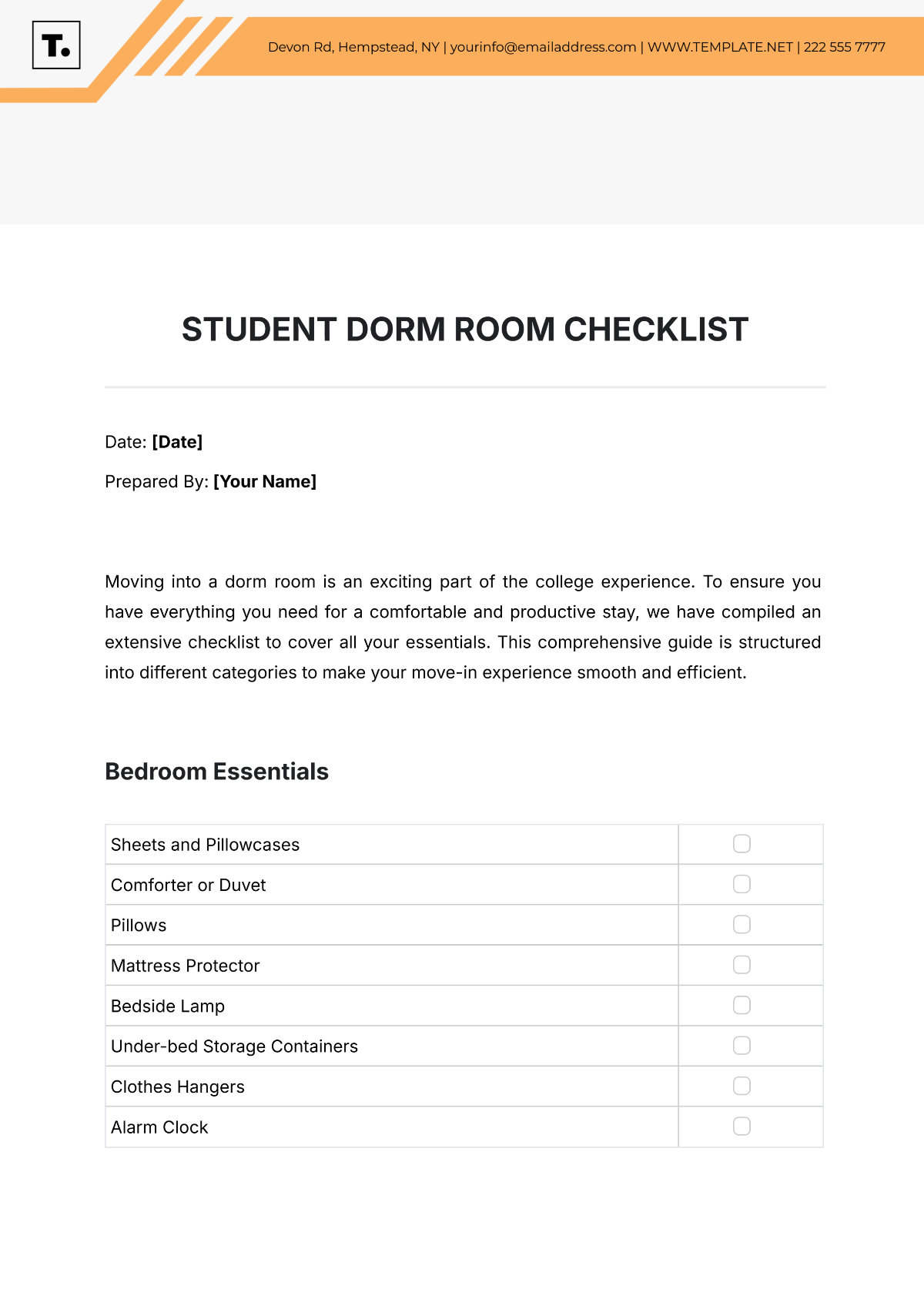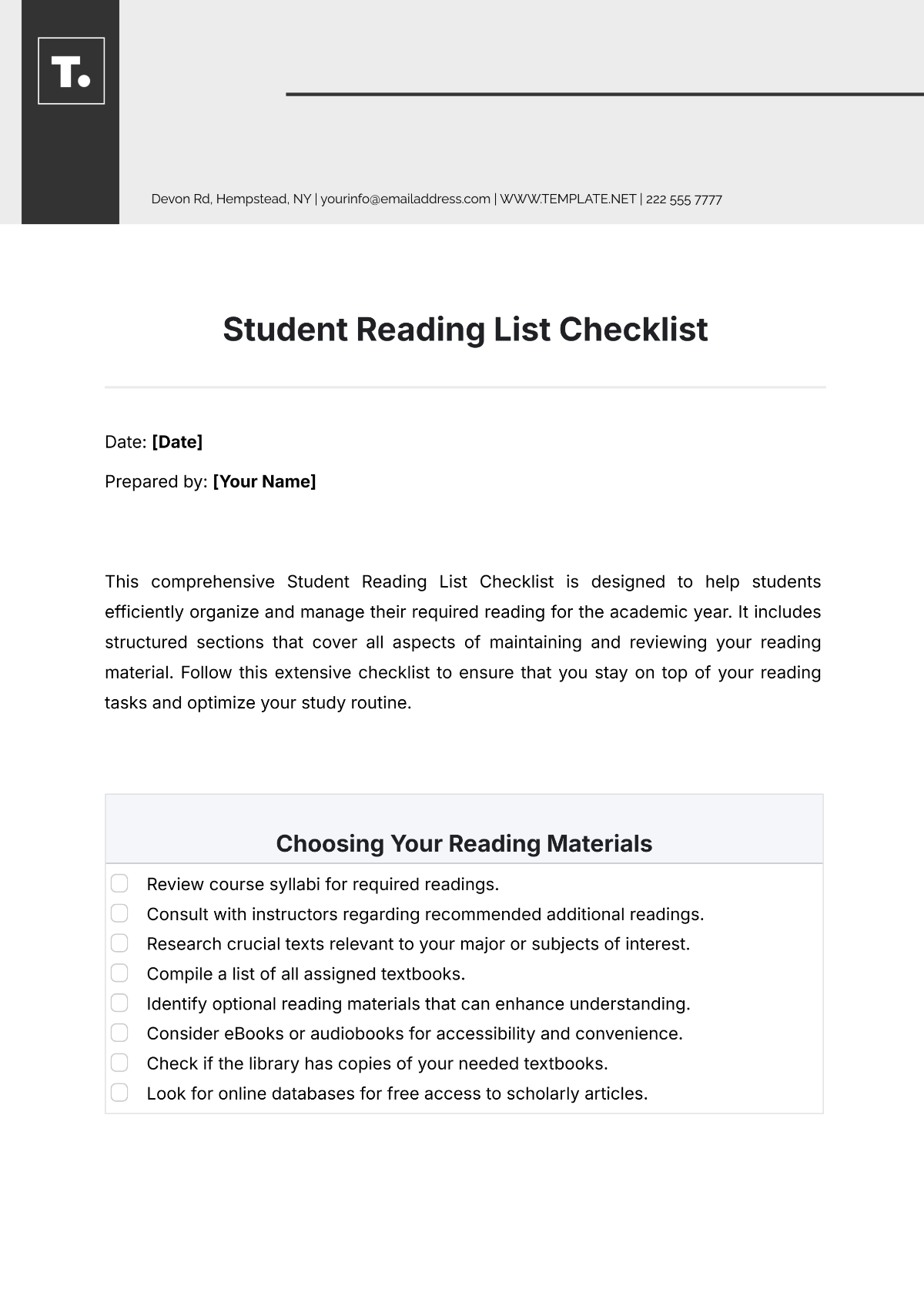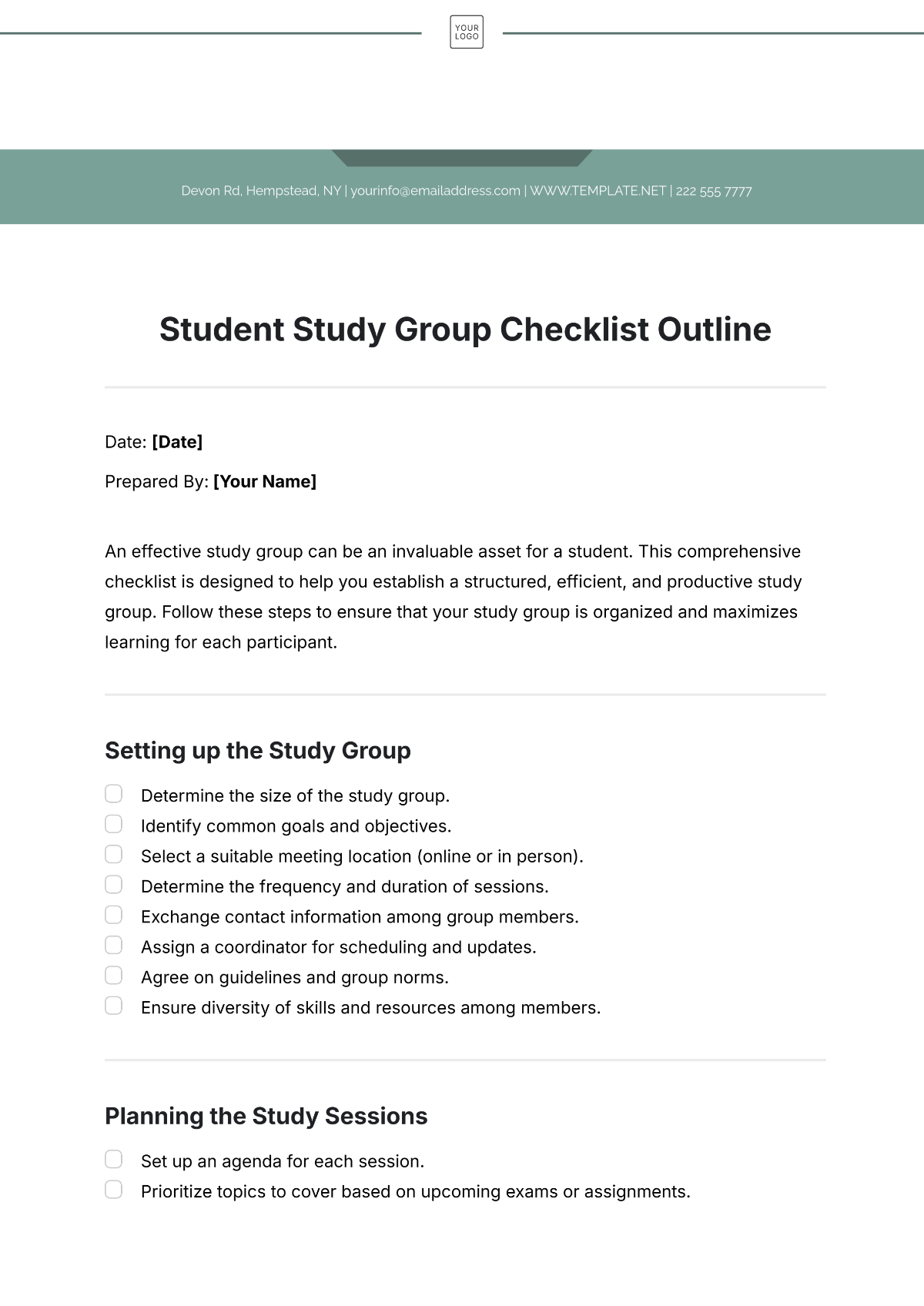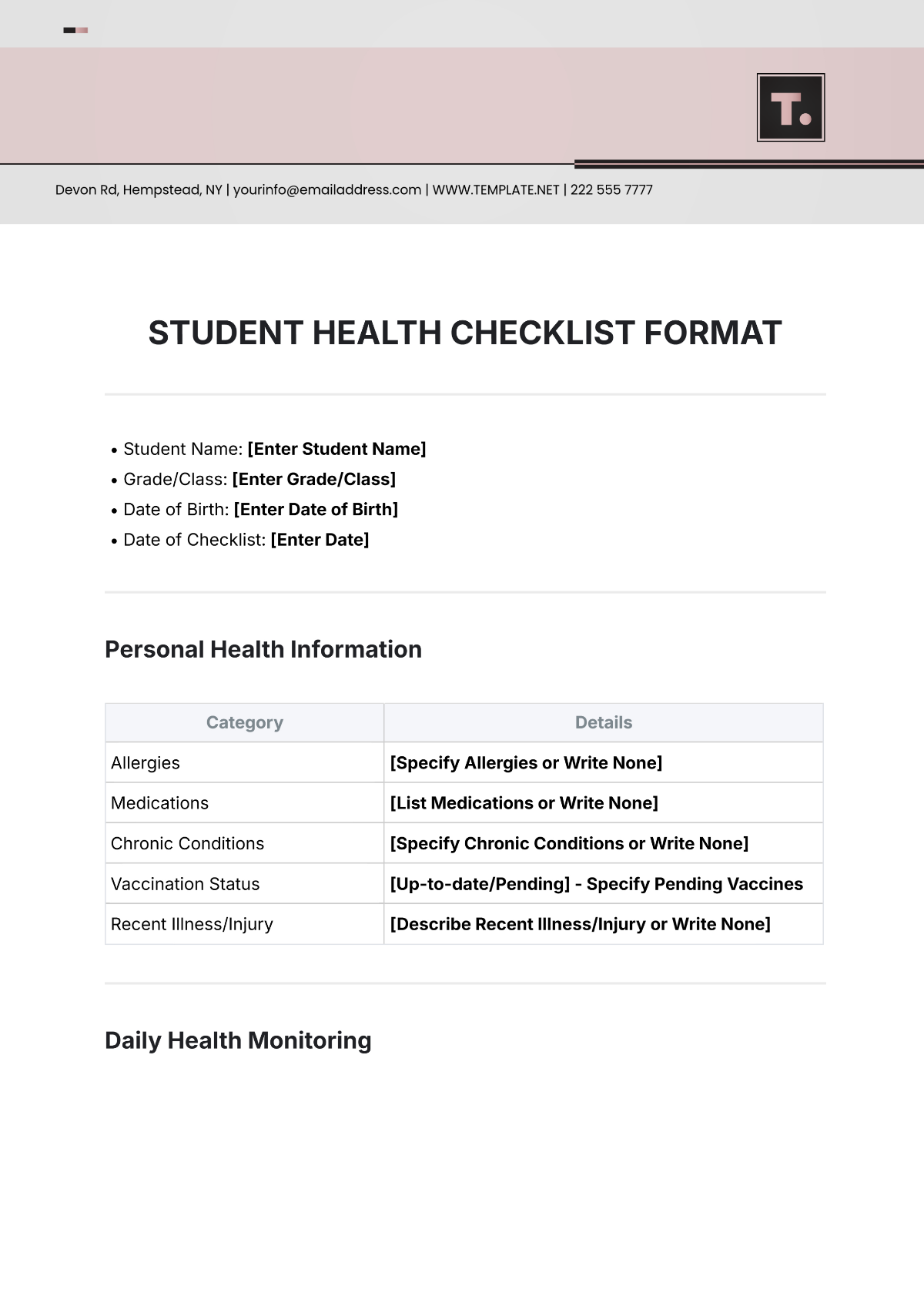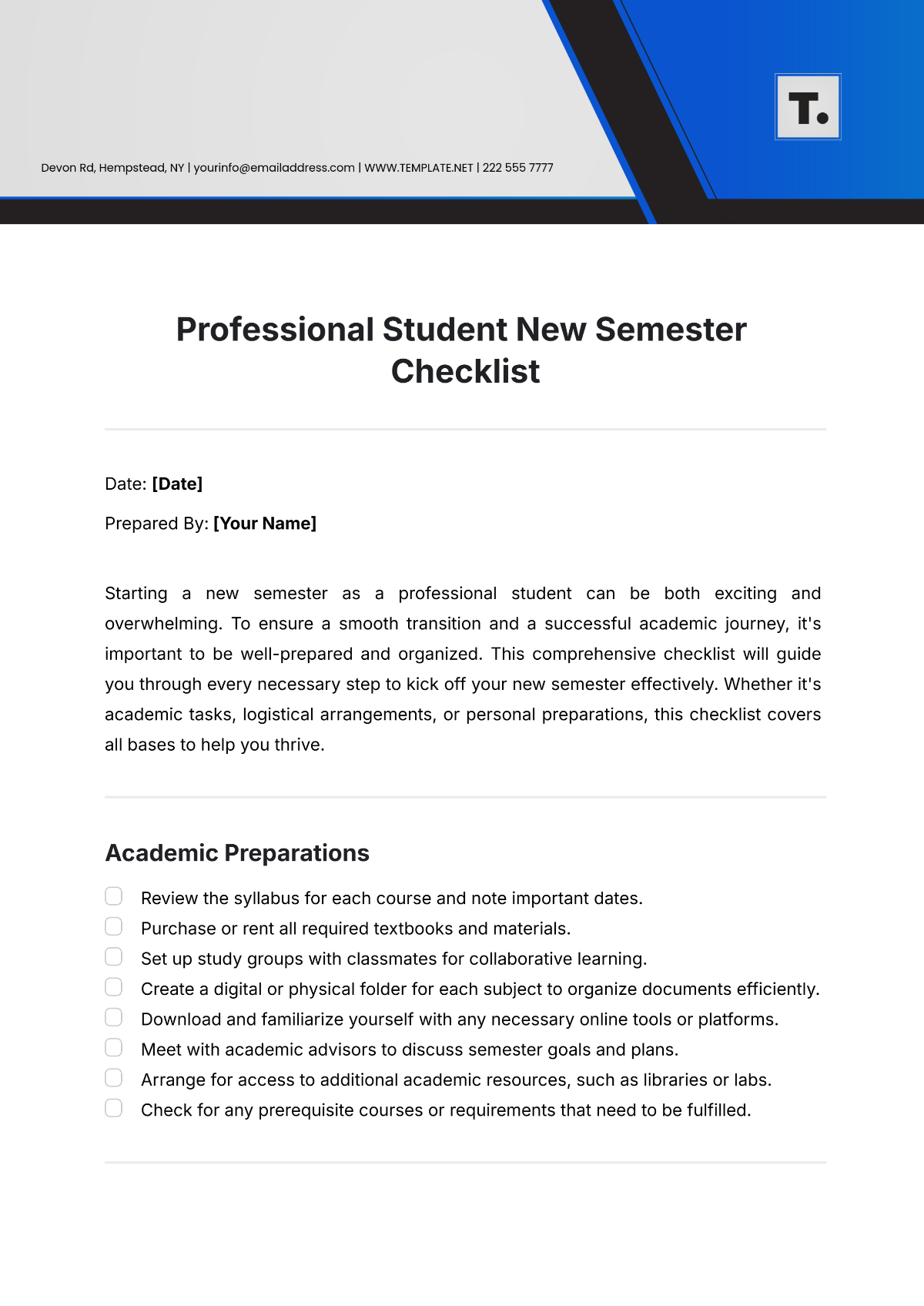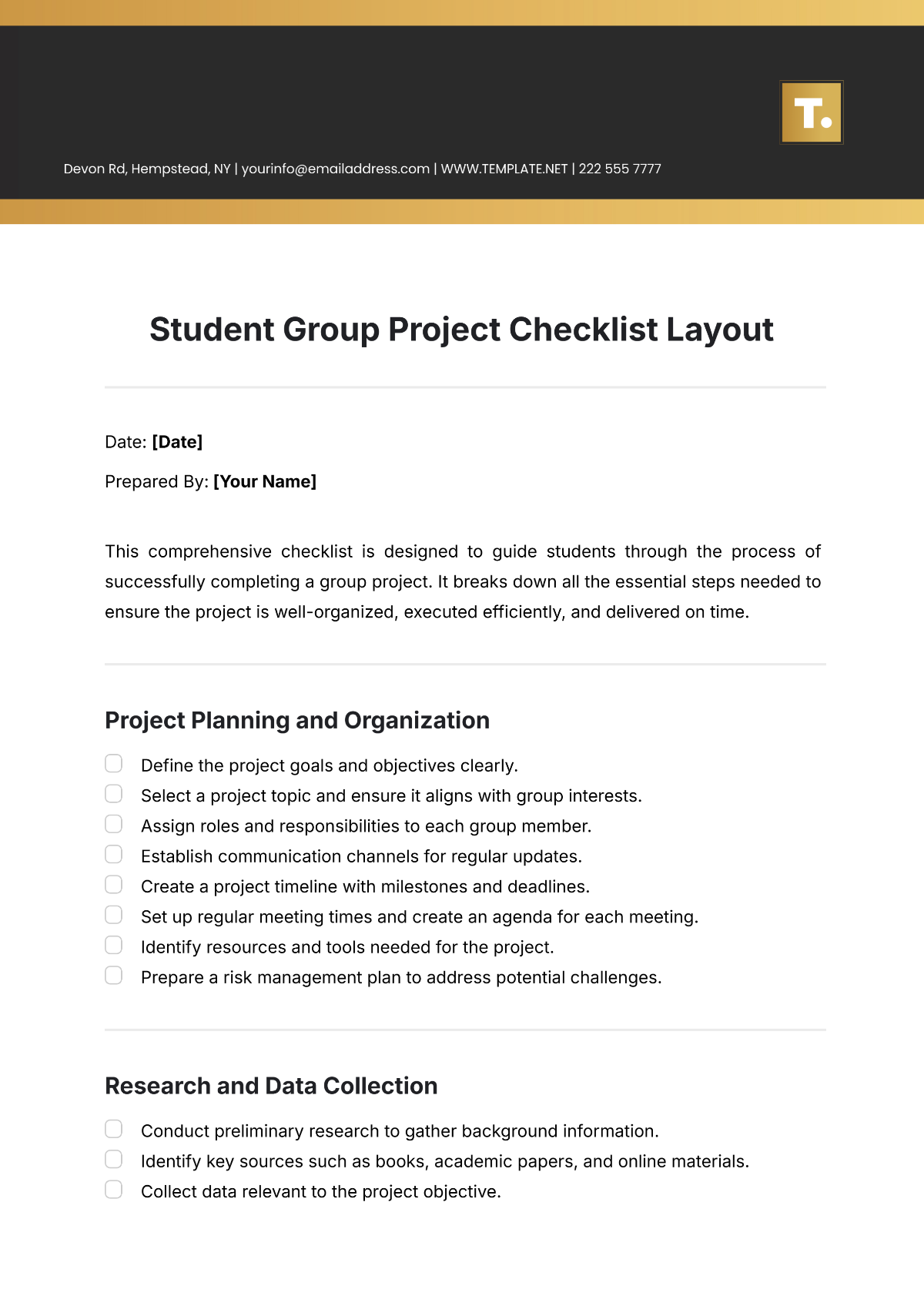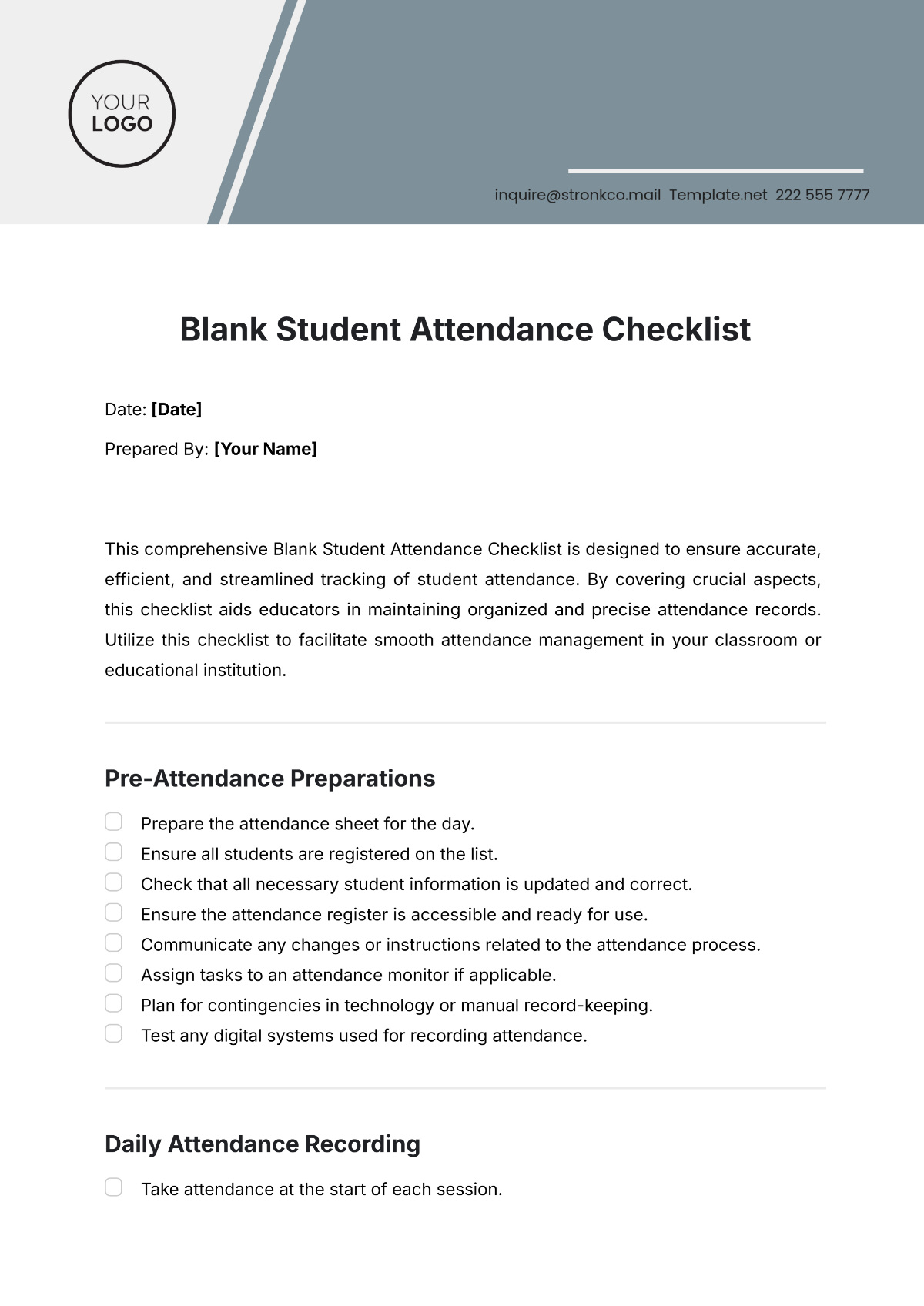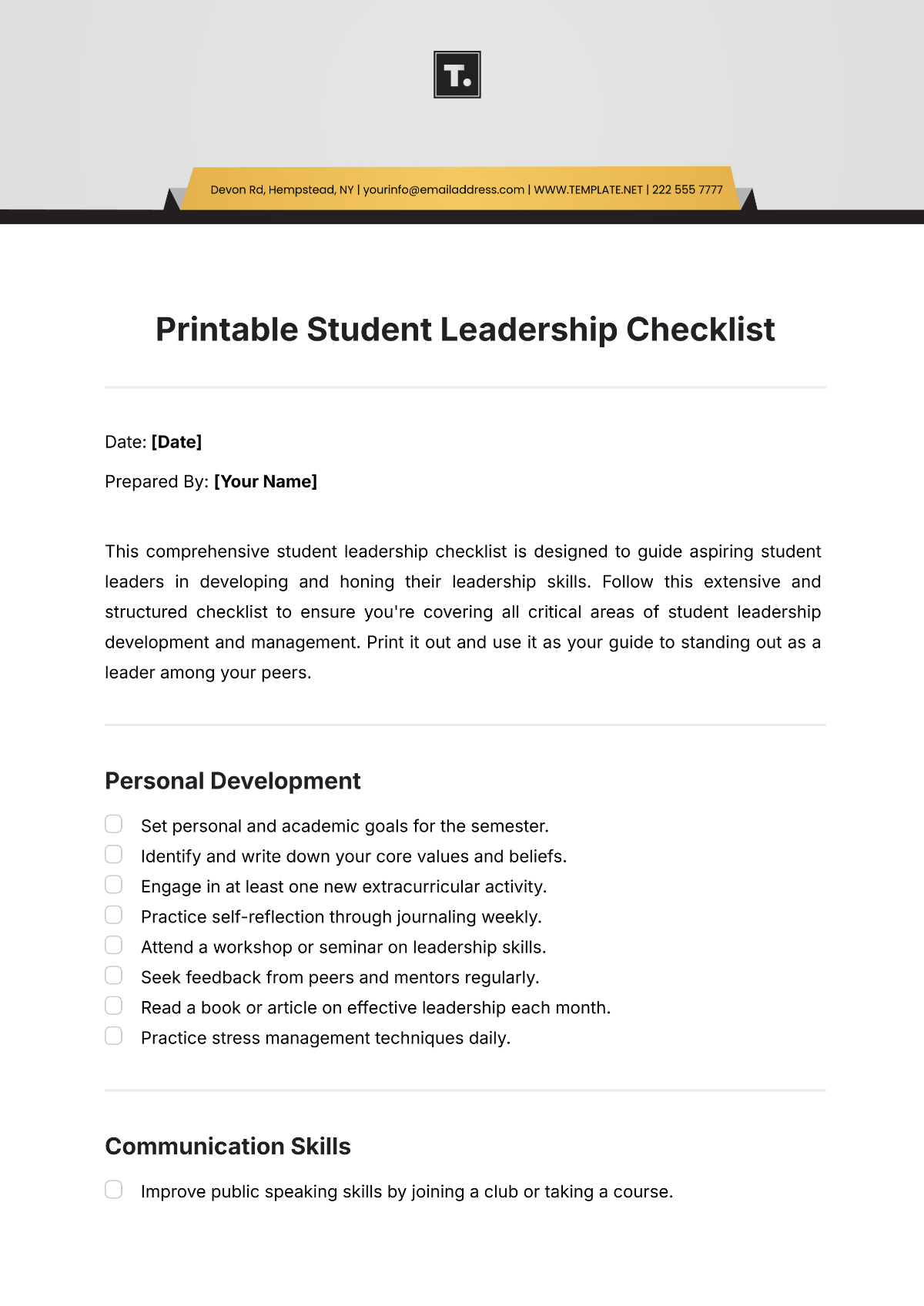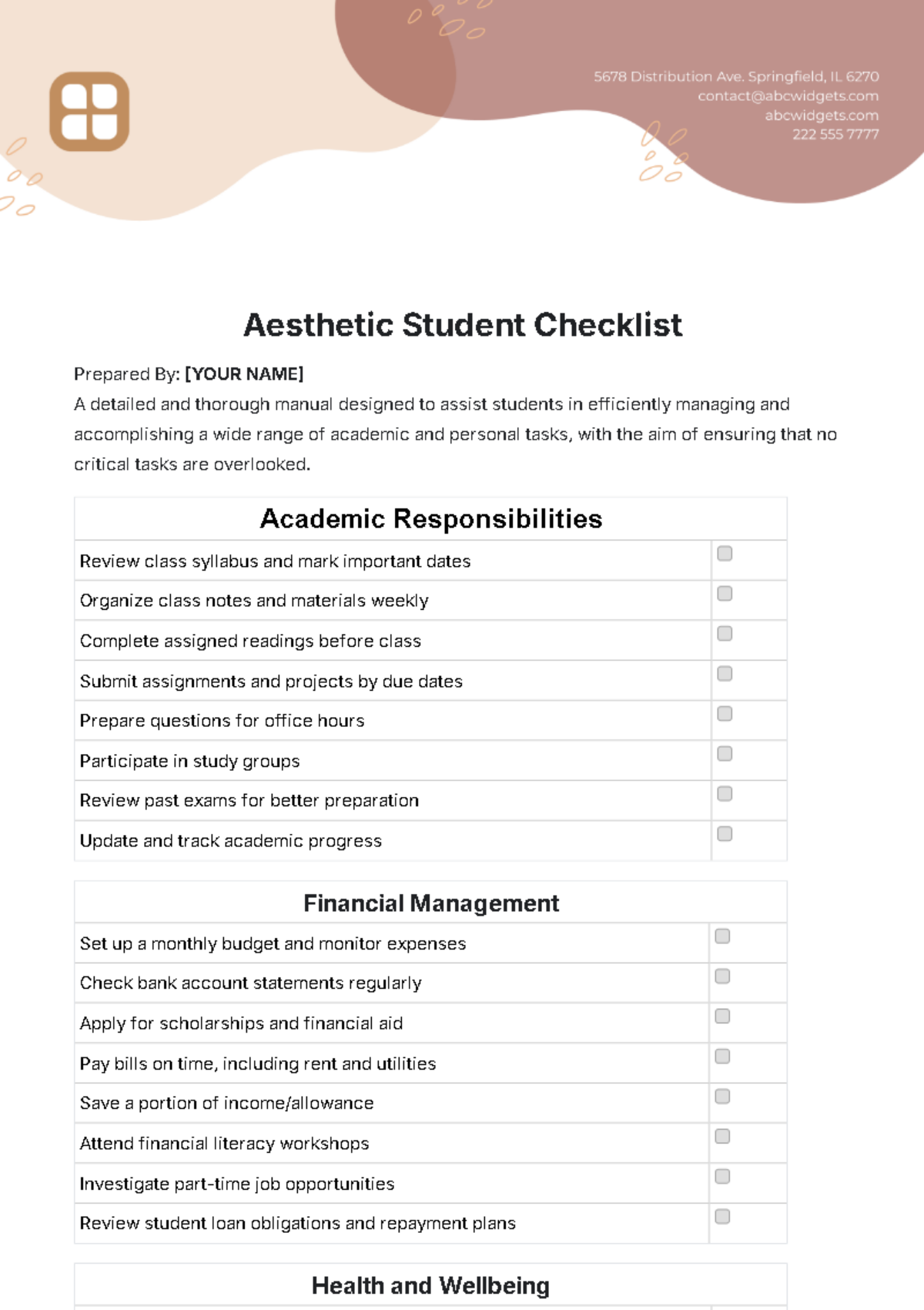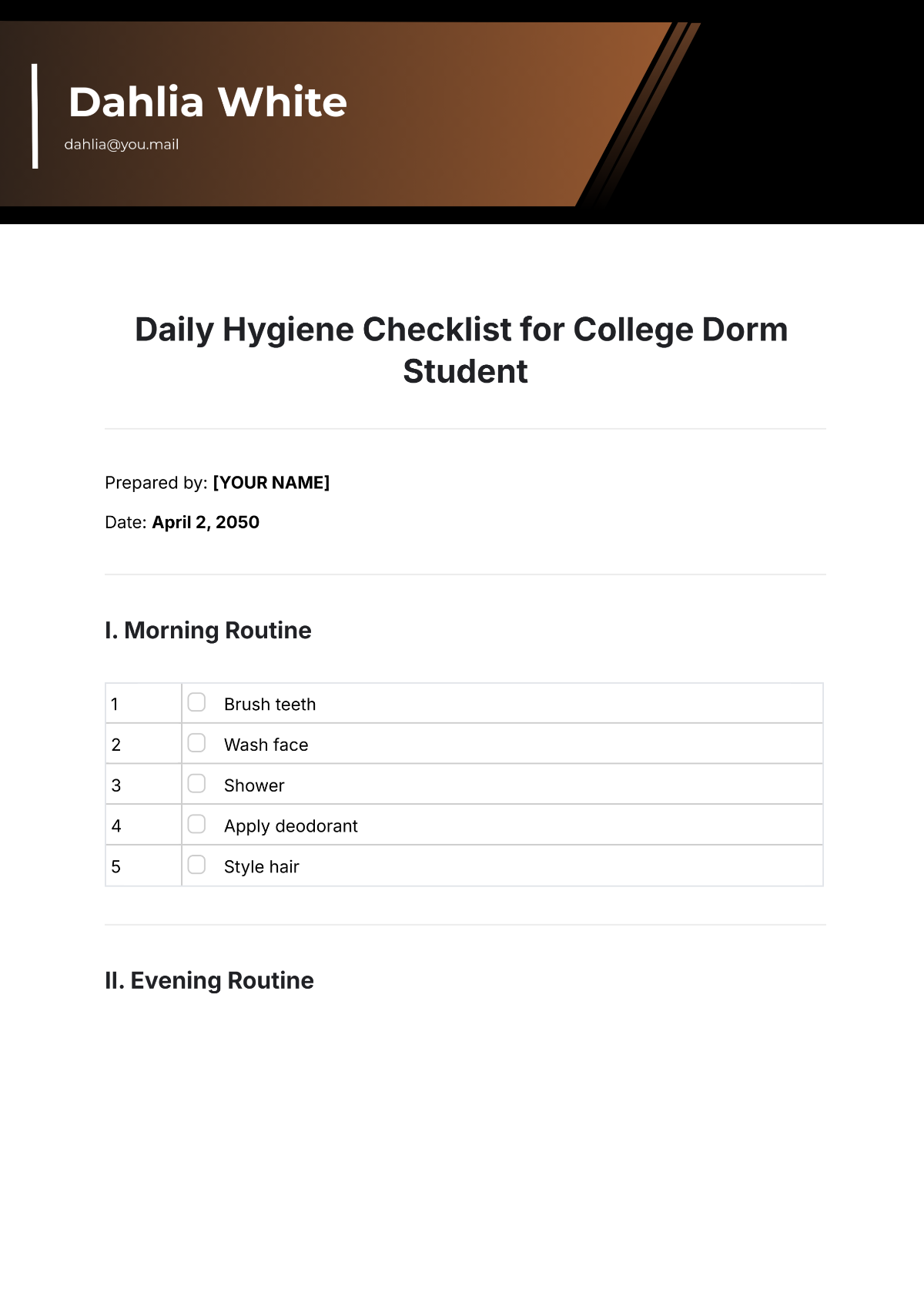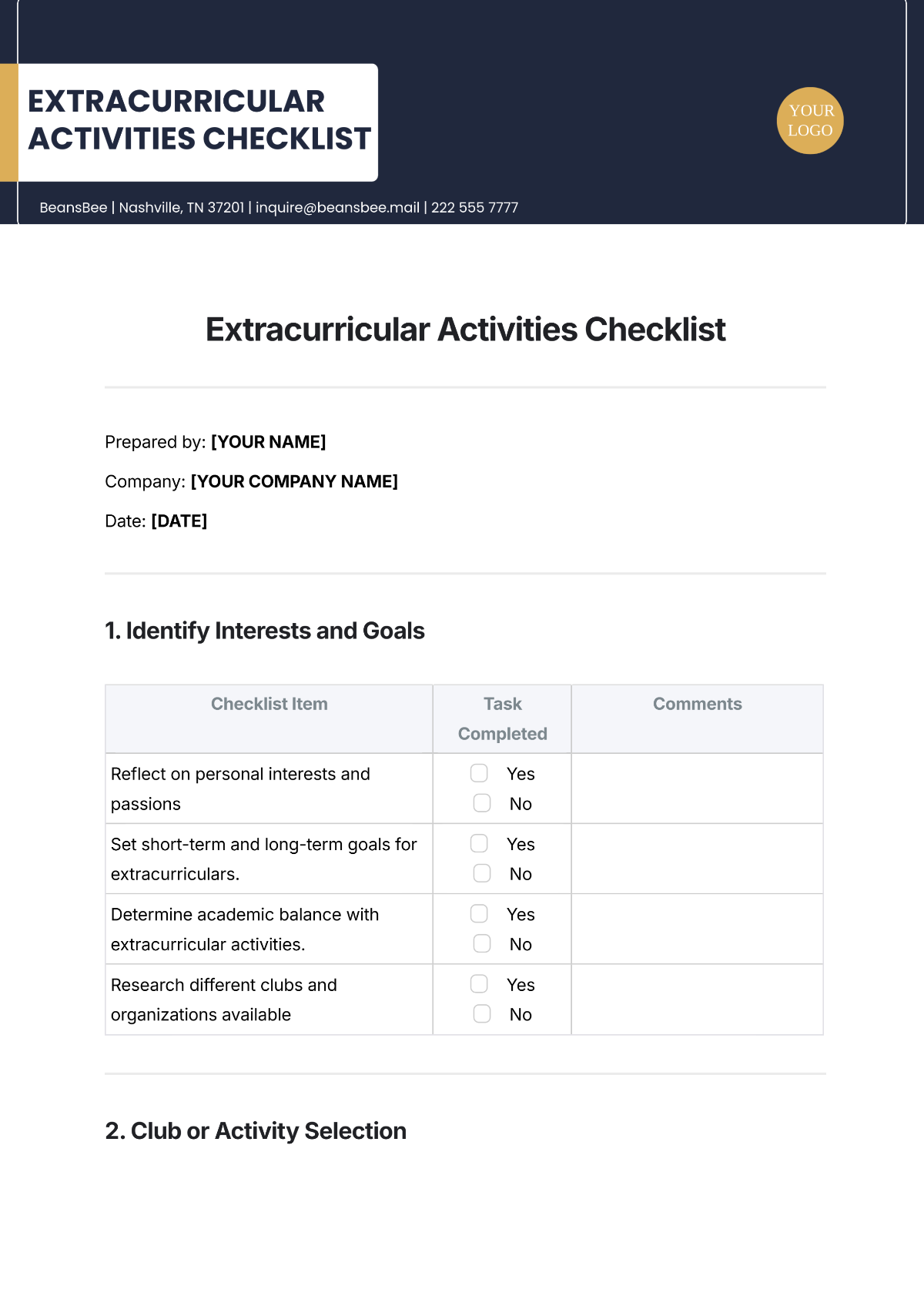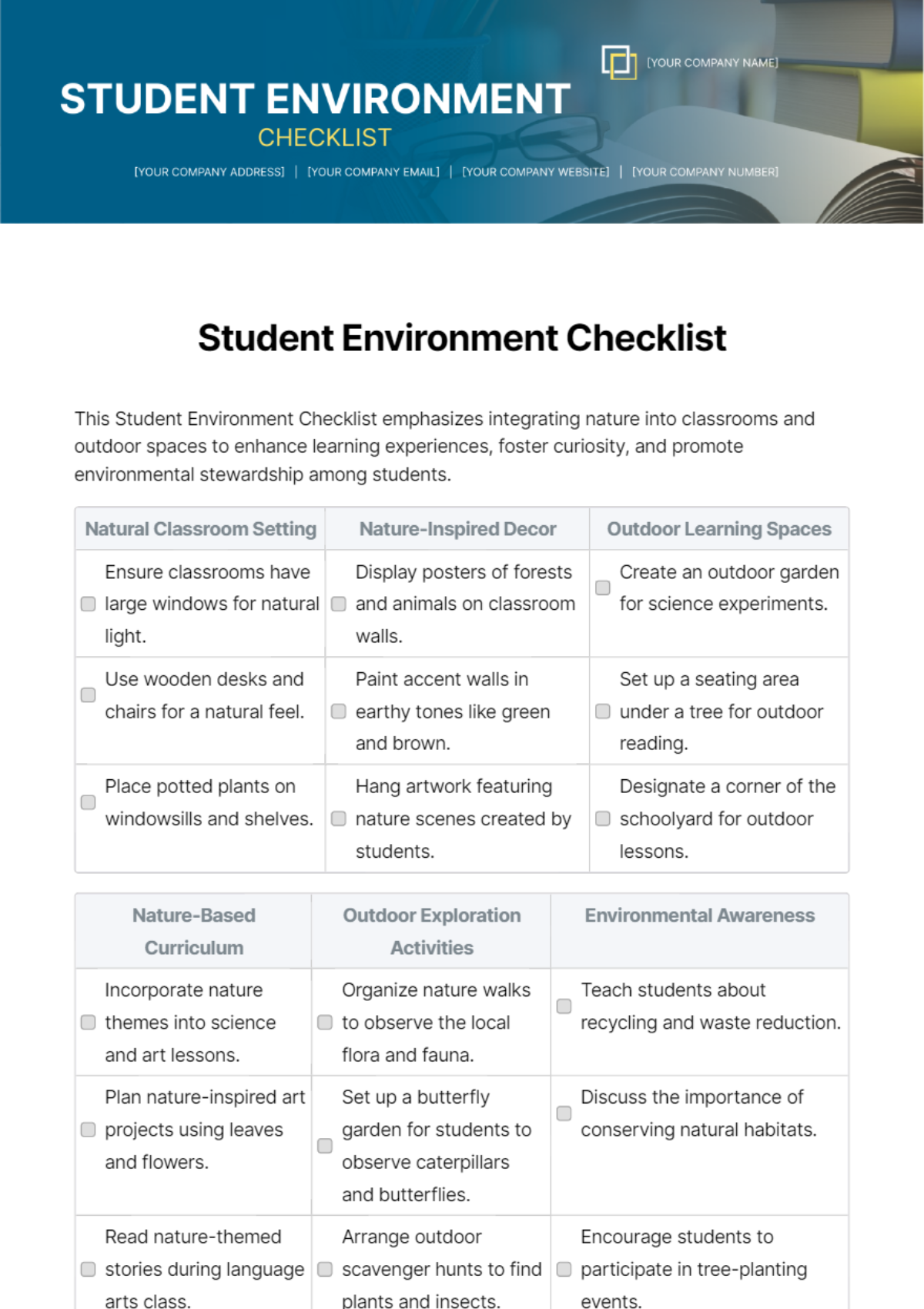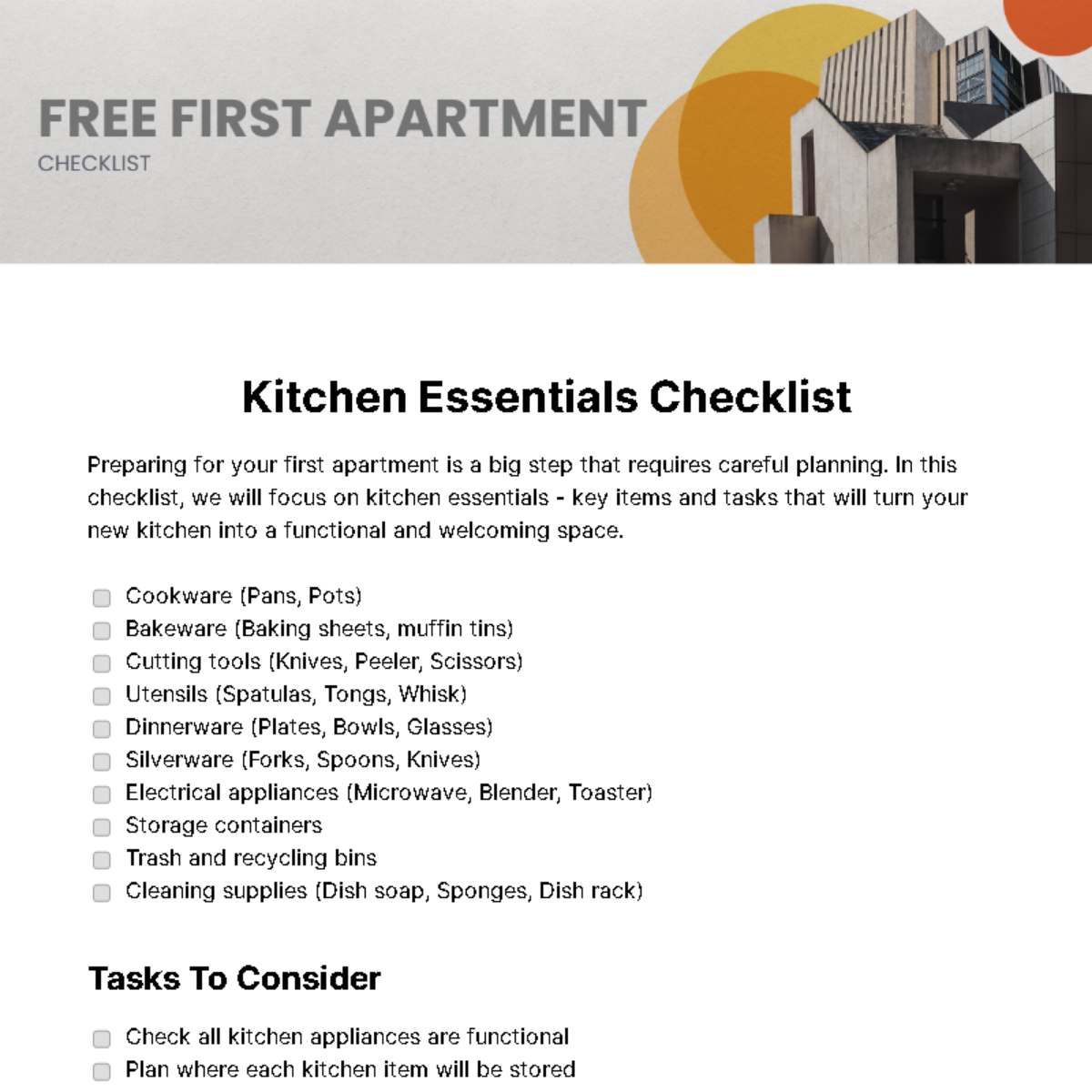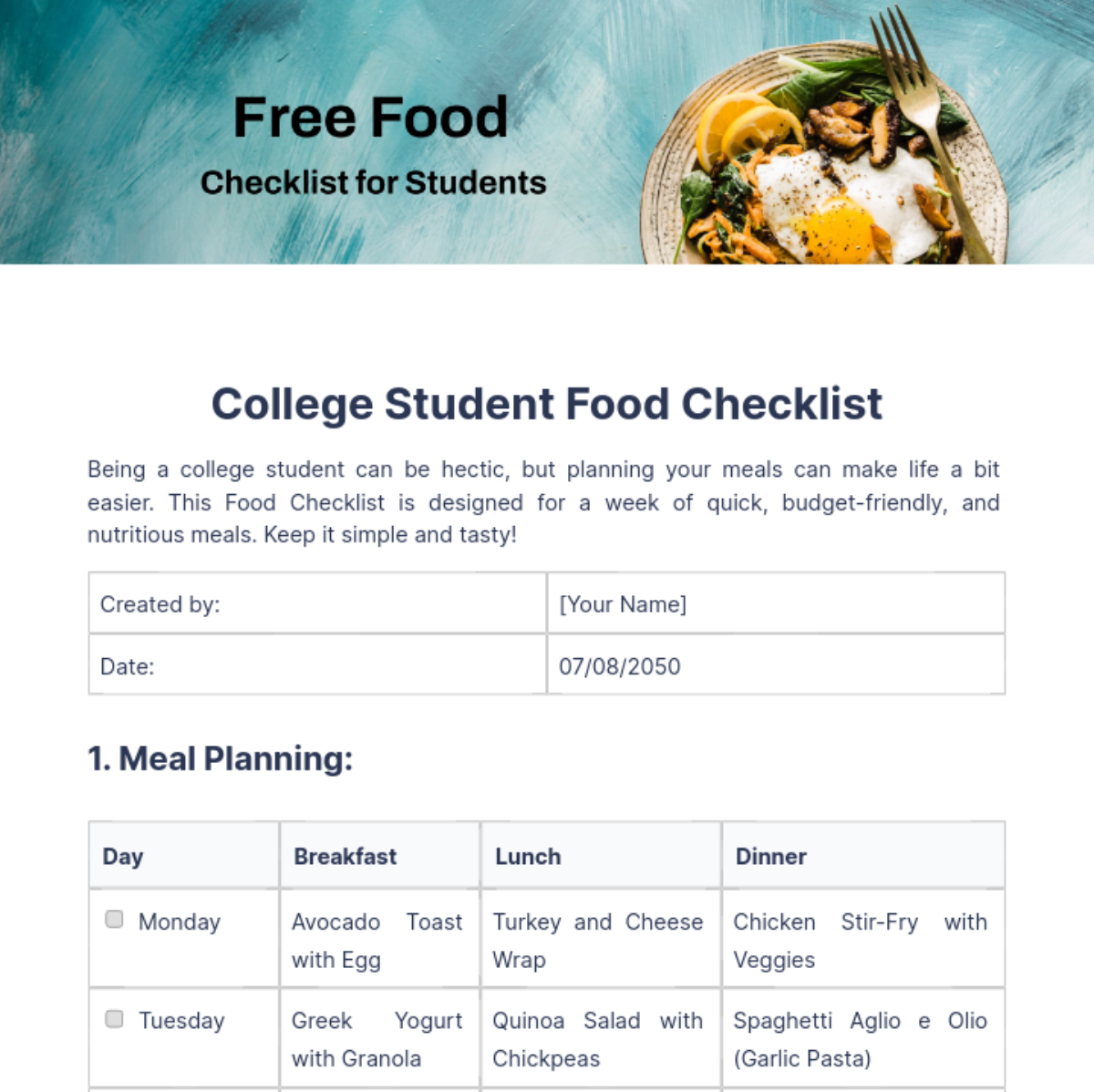Student Extracurricular Activities Checklist
Date: [Date]
Prepared by: [Your Name]
Engaging in extracurricular activities is paramount for a balanced academic life. This checklist will guide students through selecting and optimizing their participation in various activities, ensuring they not only have a fulfilling experience but also develop essential skills and interests beyond the classroom. Students are encouraged to use this checklist to effectively plan, execute, and reflect on their extracurricular endeavors.
Exploring Interests
Identify personal interests and hobbies.
Research different clubs and organizations available at school.
Attend club fairs or orientation events to gather information.
Speak to club leaders or members to understand commitment levels.
Consult with a counselor for guidance on balancing activities.
Follow social media pages for updates on extracurricular events.
Make a list of activities that align with career interests.
Evaluate past extracurricular experiences for lessons learned.
Time Management
Create a weekly planner to allocate time for activities.
Determine how many hours can be devoted to extracurricular activities weekly.
Prioritize activities based on interest and potential benefits.
Avoid overcommitting by leaving buffer days each week.
Use digital tools like calendars or apps for reminders.
Review and adjust time commitments every month.
Set aside time for relaxation and non-academic pursuits.
Evaluate activity impact on academic performance regularly.
Participation and Engagement
Attend all meetings and events for selected activities.
Engage actively by contributing ideas and volunteering for tasks.
Network with peers to develop teamwork skills.
Seek feedback from club leaders and peers.
Share achievements and learnings with mentors.
Identify opportunities for leadership roles within activities.
Organize or co-organize events or initiatives.
Reflect on personal growth and skills developed.
Financial Management
Understand any fees or dues associated with club participation.
Explore fundraising opportunities for events and activities.
Take advantage of scholarships or financial aid programs if available.
Prepare a budget for necessary materials or equipment.
Check if there are any paid internship opportunities.
Keep track of expenses relating to extracurricular activities.
Seek advice on financial management skills from finance clubs.
Plan ahead for new or special activities with higher costs.
Documentation and Reflection
Maintain a portfolio of achievements and projects.
Record any certificates or awards received.
Keep a journal of experiences and lessons learned.
Create a summary document of skills gained each semester.
Prepare a resume that includes extracurricular experiences.
Review and update documentation regularly.
Reflect on how activities influence career goals.
Seek feedback from mentors to refine action plans.
Physical and Mental Health
Schedule regular exercise and downtime.
Engage in mindfulness or relaxation techniques.
Monitor stress levels and seek help when necessary.
Participate in wellness programs or therapy.
Ensure healthy eating habits are maintained.
Join support groups if dealing with specific concerns.
Practice good sleep hygiene.
Balance social life to avoid feelings of isolation.
Feedback and Improvement
Seek regular feedback from peers and mentors.
Conduct self-assessments periodically.
Identify areas for improvement and set goals.
Participate in workshops or seminars to acquire new skills.
Be open to constructive criticism and use it for growth.
Join webinars on effective student involvement.
Re-evaluate commitments if they do not yield positive results.
Celebrate achievements and set new challenges.
Additional Reminders
Engage consistently and stay committed to maximize extracurricular benefits.
Regularly revisit personal goals to ensure alignment with chosen activities.
Balance academics and extracurriculars for a healthy lifestyle.
Stay informed about new opportunities and be open to trying different activities.
Always be adaptable and willing to pivot strategies when faced with challenges.
Remember that quality over quantity significantly impacts personal growth.
Cultivate extracurricular relationships for a supportive network.
Thoroughly document experiences for future use.
